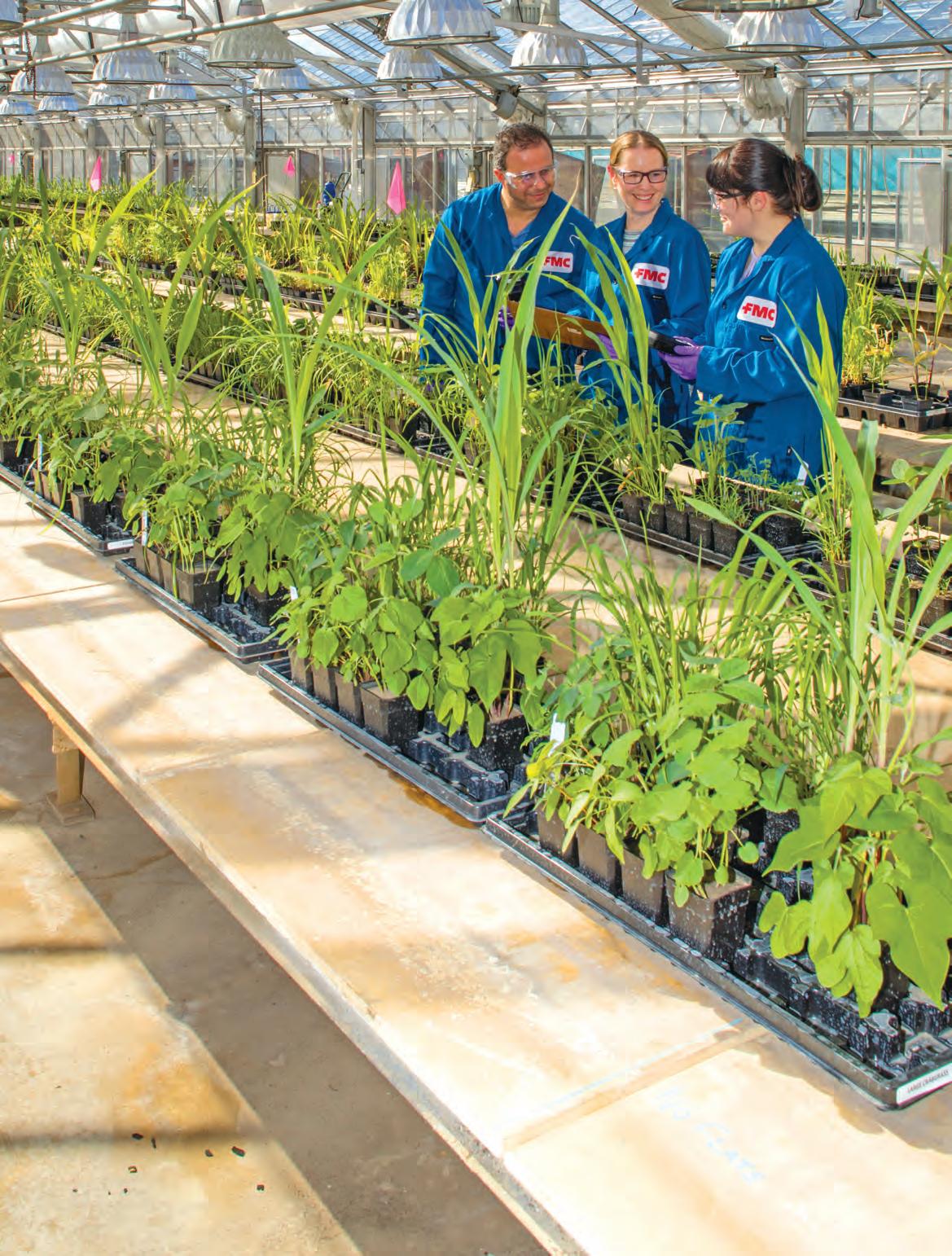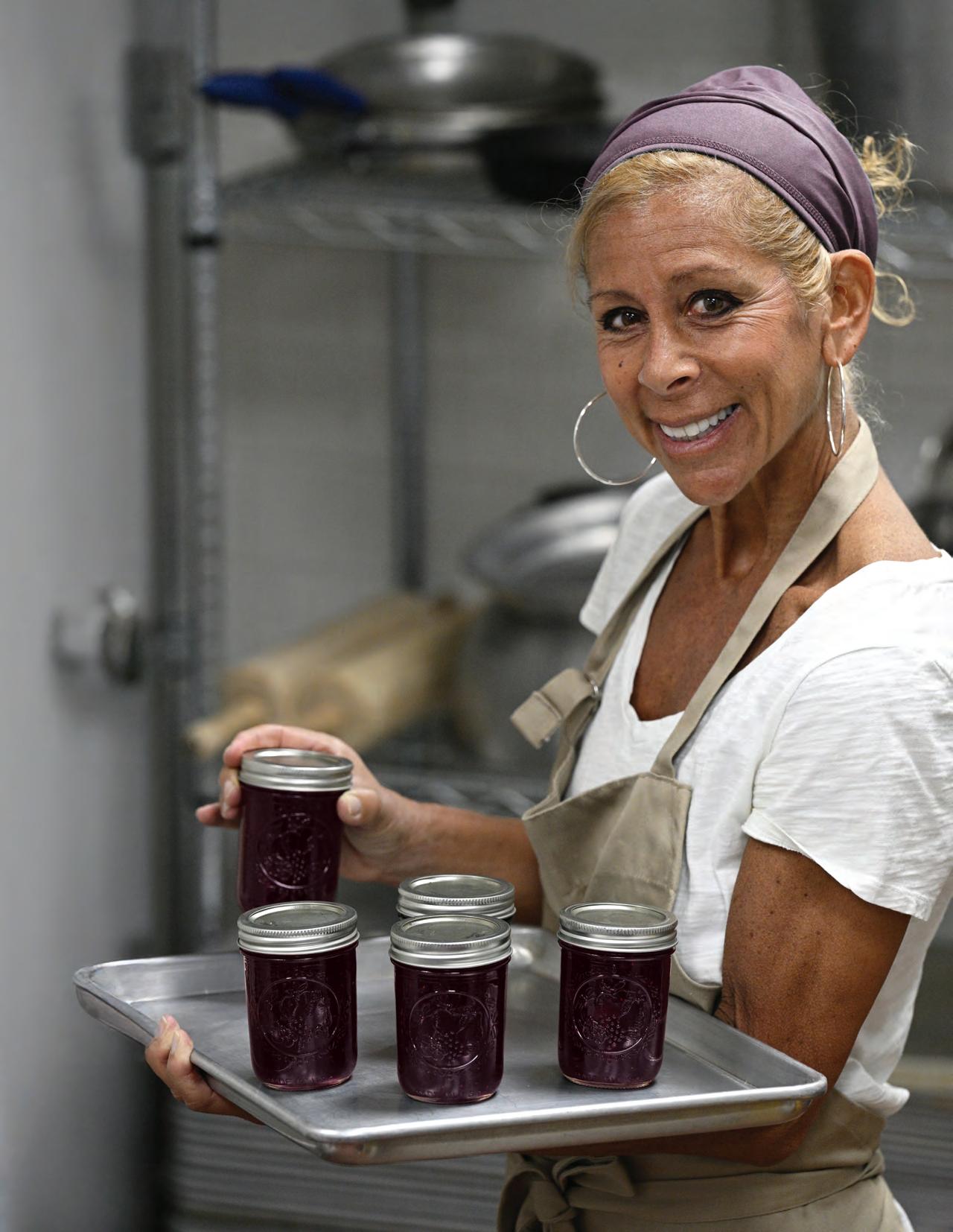

BUSINESS DELAWARE Opportunity on the Menu
Sussex County’s Kitchen Incubator is serving up a new model for hospitality growth


























































































































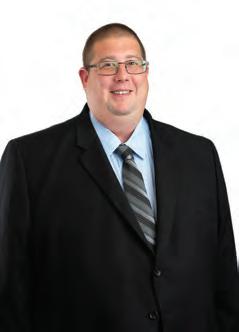



































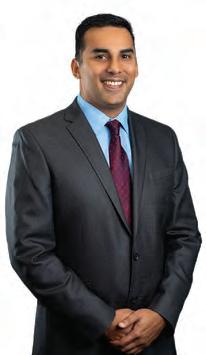















































Your Source for Tax Services Since








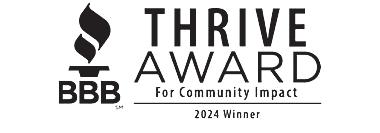















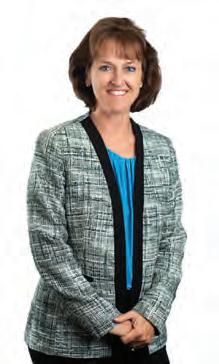







For over 50 years, Whisman Giordano & Associates has combined technical expertise with a commitment to building extraordinary relationships with our clients and the community. We understand that behind the numbers is a dream, a mission, a purpose— you, as a fellow human, and your business matter to us.








































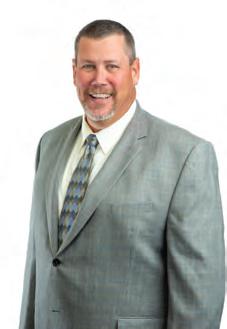




















Kevin Sanok, EA, MSA Manager
Alex Lalani, CPA Director
Lisa DeRose, CPA, CGMA Managing Director
Edward Devenny, CPA Director
Thomas Dyer Senior Manager
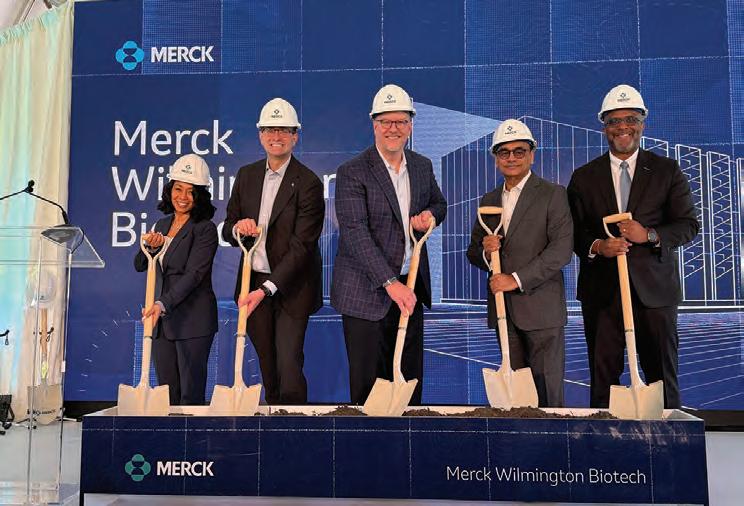
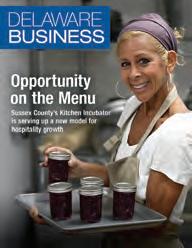
Message from the President
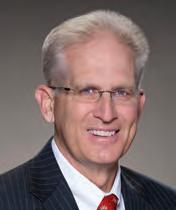
The uncertainty caused by a shifting U.S. tariff policy has created plenty of conversation among State Chamber members.
As I write this, container shipping traffic from China to the Port of Los Angeles — the busiest destination for ships coming from China to the U.S. — has dropped to a level three times lower than the worst weeks of shipping during the pandemic.
During a briefing in May, Port of Los Angeles Executive Director Gene Seroka said that he’s anticipating vessel volumes to come in well below what the port saw during the peak of pandemic, while predicting lower inventory for businesses “across a variety of retail sectors,” as well as for parts supplies for U.S. factories. “That’ll leave us with fewer selections of products and likely higher prices,” he said. “For now, uncertainty remains in every business meeting that I have, and trying to find a way to make the best decisions for companies possible still remains elusive.”
The Trump Administration believes China must address the trade deficit issue with the U.S. to achieve a lasting trade deal and tariff reductions. For China, the U.S. is the number one export destination of consumer goods they produce, and no other market comes close. Without U.S. exports, China will experience an economic slowdown, as their own economy, which is defined by an older demographic that is largely past its consumption years, cannot absorb whatever inventories remain.
The resulting product shortages here in the U.S. will likely lead to inflated prices and a slowing of economic activity. Whether it’s steel, aluminum, copper, thermostats, clothes, or other consumer goods, our members will be challenged.

DELAWARE
BUSINESS
EDITORIAL STAFF
Marie Holliday, CPA Chair Michael J. Quaranta President Regina Donato Editor Christina Jones Graphic Design
BOARD OF DIRECTORS
CHAIR
Marie Holliday, CPA
The Bonadio Group
VICE CHAIR
John C. Gooden
M. Davis & Sons, Inc.
Catherine M. Bassett
Mountaire Farms
Andrew Cottone, Ph.D. ADESIS
Dr. LaVerne T. Harmon Wilmington University
Tom Horne
JPMorgan Chase
Natalie Keefer Bank of America
BOARD OF GOVERNORS
Michael A. Albero, CPA, MST*
AKA Advisory, LLC
Tony Allen, Ph.D.
Delaware State University
Pierre Anderson
Artesian Water Company, Inc.
Steve Baccino
Chesapeake Utilities
Christopher W. Baker
George & Lynch, Inc,
Greg Ballance
Diamond Technologies
Scott Baylis
WSFS Bank
Mike B. Berardi
Wohlsen Construction Co.
Adam Blackford
Agilent Technologies
Robert A. Book II
Delaware Electric Cooperative
Julian H. “Pete” Booker
Delaware Public Media
Jennifer Gimler Brady
Potter Anderson & Corroon LLP
Dr. Mark T. Brainard
Delaware Technical Community College
Beth G. Brand University of Delaware
Desa Burton Zip Code Wilmington
Darren Buseman
B&M Meats, Inc.
Robert L. Byrd ByrdGomes
Patrick Callihan Tech Impact
Christopher Carroll Comcast
Stuart Comstock-Gay Delaware Community Foundation
Charlie Copeland Associates International, Inc.
Pam Cornforth
Ronald McDonald House Charities of Greater Delaware
Jason Danner
Kelly Benefits Strategies
Rick Deadwyler Corteva Agriscience™
Ernest Dianastasis The Precisionists, Inc.
Brian DiSabatino
EDiS Company
Walter Donaldson Freeh Sporkin & Sullivan, LLP
Lisa M. Donlon, PE VanDemark & Lynch
Janet Dougherty
Fulton Bank, N.A. Thère du Pont Longwood Foundation
Jerry Esposito Espo Enterprises, LLC
John C. Fannin III
Harvey, Hanna & Associates
G. Kevin Fasic, Esq. Offit Kurman
Jennalee Fede, PE Verdantas LLC
Brian Frazee
Delaware Healthcare Association
Donald T. Fulton
Weiner Benefits Group
Martha S. Gilman
Cornell Property Management Corp.
Joseph V. Giordano
Whisman Giordano & Associates, LLC
Terry Glebocki
Delaware Park Casino & Racing
Jason D. Gonzalez DuPont
Logan S. Herring, Sr. The WRK Group
Kirsten Higgins Tidewater Utilities, Inc.
Bayard Hogans
Enstructure Mid-Atlantic
Michael Houghton
Morris, Nichols, Arsht & Tunnell, ret.
Tim Houseal†
Young Conaway Stargatt & Taylor, LLP
Jessica Hunt
Siemens-Healthineers
Mark Hutton M&T Bank
LeVar Johnson Novo Nordisk
Robert McGuckin
Verizon
Michael A. Meoli
The Meoli Companies
Nicholas A. Moriello, RHU Healthcare Innovation Acceleration, LLC
Cathy Kanefsky Food Bank of Delaware
Colleen Perry Keith, Ph.D. Goldey-Beacom College
Melissa Kenny ShopRites of Delaware
Apollo Khine Barclays US Consumer Bank
Matthew Lantagne TD Bank
Alan Levin SoDel Concepts
Andy Lubin
Delaware Financial Group
Mac Macleod Carvertise
Scott Malfitano CSC
William E. Manning Saul Ewing LLP
Mark R. Marcantano, JD Nemours Children’s Health, Delaware Valley
Paul M. McConnell McConnell Development, Inc.
Katie McEvoy AT&T Delaware
Gregory Miraglia
PNC Bank
Jeff Mitchell Siegfried Advisory
Jonathan D. Moll, CPA Belfint, Lyons & Shuman
Chad Moore Beacon Hospitality
Terry Murphy Bayhealth Medical Center
Janice Nevin, M.D., MPH ChristianaCare
Chris O’Neill PSCI
Jed Patterson LabWare
Chris Perdue Perdue Farms
Robert W. Perkins Brandywine Public Strategies
Chip Rankin MilliCare
Michael Ratchford
W. L. Gore & Associates, Inc.
Dr. Rob Rescigno Collaborative Consulting LLC
Damon Howard
Tyler Micik
Director, Public Policy & Government Relations
Greg Smith
The Chemours Company
David A. Tam, MD, MBA, CPHE, FACHE Beebe Healthcare
Bridget Therriault
AstraZeneca
Ann B. Wayne SUN Behavioral Delaware
Lloyd A. Ricketts
Wilmington University
Robert “Rob” Rider, Jr. O.A. Newton
Bettina Tweardy Riveros ChristianaCare
Salvatore J. “Chip” Rossi Bank of America
James J. Roszkowski
Discover Bank
Jake Ruddy PCS
Rhett Ruggerio Ruggerio Willson Watson
Dennis M. Salter
Edinburgh Capital Management LLC
Greg Sawka Bancroft Construction Company
Chris Schell
Schell Brothers
Robert S. Smith Santora CPA Group
Jonathan Starkey Delaware State University
Mark Stellini
Assurance Media
Mike Tatoian
Dover Motor Speedway
Jim Taylor
Saul Ewing LLP
Ivan Thomas DETV
Jana Tidwell AAA Club Alliance
Michael S. Uffner AutoTeam Delaware
Mike Vanderslice Environmental Alliance, Inc.
Rod Ward CSC
Robert W. Whetzel Richards, Layton & Finger
Ed Winslow Citizens Bank
Kevin M. Wolfgang Evergreen Apartment Group
*Treasurer †Counsel
Kerri Welcher Manager, Events STAFF
Helana Rodriguez Director, The Partnership
Amanda Schimmel Manager, Marketing & Accounting
Michael J. Quaranta
LEGISLATIVE PRIORITY
At the Half: The 153rd General Assembly So Far
BY TYLER MICIK
BY THE TIME this article is published, the first leg of the 153rd General Assembly will have come to an end. This year brought a lot of changes. For starters, in January, eight new members of the General Assembly were sworn into office, along with a new governor, Matt Meyer, and lieutenant governor, Kyle Evans Gay. The House also saw new leadership and Governor Meyer’s cabinet was confirmed by the Senate – bringing fresh perspectives to key roles in the House and state agencies, and new policy priorities.
At the time of this writing, there are only four session days remaining. The State Chamber engaged on numerous bills this year — some have already passed, while others remain in play as the final session days approach. It’s important to note that any pending legislation not defeated or enacted will carry over to next year. While there are many bills to cover, I want to mention a few of importance:
PAY TRANSPARENCY
HS 2 for HB 105, pay transparency, is on the Senate ready list and we expect it to pass. Governor Meyer has signaled his support and intention to sign the bill into law. The bill requires businesses with more than 25 employees to post salary or wage ranges in job advertisements, and to maintain detailed records of job descriptions and compensation histories for each employee. Through our conversations with the bill sponsor and others, the proposal was amended considerably from its original form. These changes included things like raising the small business exemption from 10 to 25 employees, extending the effective date from one to two years, and limiting the recordkeeping requirement to a period of three years, among others. The State Chamber’s position on this bill is now neutral based on amendments.
PERMITTING FEES
improvements, such as enhanced service delivery and improved customer experience, and our members look forward to seeing those improvements realized.
PERSONAL INCOME TAXES
HS 2 for HB 13 failed to be released from the House Revenue and Finance Committee. The act introduces higher rates for income at $150,000 (6.75%), $250,000 (6.85%), and $500,000 (6.95%).
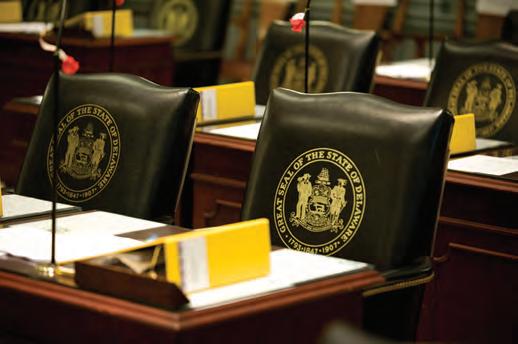
For decades, Delaware has maintained a lower top marginal tax rate than neighboring states to attract investment, jobs, and talent. This proposal risks discouraging small business growth, as many operate as pass-through entities and would face higher tax burdens. Combined with upcoming property tax increases and economic uncertainty, it could drive high-income earners and entrepreneurs out of the state. We commend the legislature for thoughtfully considering our feedback and for pausing the bill’s advancement. As Speaker of the House Melissa Minor-Brown noted during our End-ofSession Policy Conference in May, “We have to do it right, and I don’t know if we’re ready to do it right now. It can’t be a rush job. It has to be a comprehensive approach.”
We thank the members of the General Assembly for working with us this session to find solutions that take into consideration the interests of all Delawareans, businesses included. We look forward to working with policymakers this offseason, and we hope our members will take advantage of opportunities like participating in our member-to-member program and attending events like our Chamber Chase Golf Tournament, which support our advocacy efforts.
HB 175, DNREC’s permitting fees package, passed and is awaiting the Governor’s signature. Members of the State Chamber’s Environmental Committee met with Secretary Greg Patterson and his team prior to its introduction to discuss the bill and provide feedback, resulting in constructive changes to the bill. We recognize the need for fee increases to achieve meaningful departmental

Tyler Micik is the Delaware State Chamber of Commerce’s director of public policy and government relations.
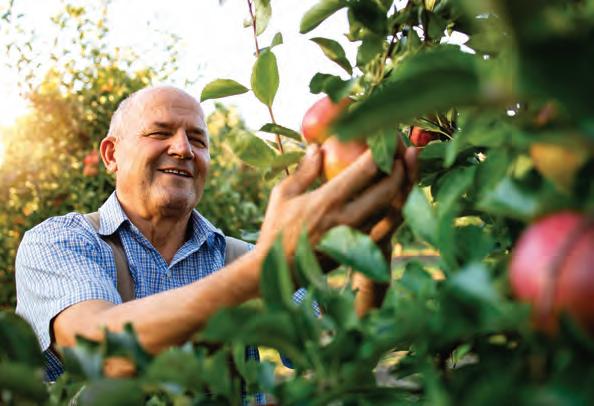


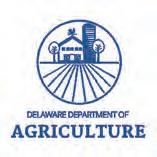
to increase the viability of Delaware’s agricultural industry by broadening lending opportunities across the agricultural sector. The Delaware Economic Development Authority (DEDA), through the state’s Division of Small Business, will provide loans of $25,000 to $250,000 with a maximum loan amount of 50% of a project’s total cost.

If severe joint pain is impacting your mobility and overall quality of life, Beebe Healthcare is here to offer a path to relief and recovery. Our award-winning Orthopaedic Services program specializes in the prevention, diagnosis, and treatment of disorders of the bones, joints, ligaments, tendons, muscles, and nerves (musculoskeletal system). Our experienced board-certified and fellowship-trained orthopaedic surgeons are expertly trained to perform a wide range of procedures, and have your best interests in mind from diagnosis through treatment.
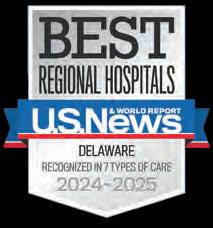
Member news&Notes
BUSINESS SPOTLIGHT:
Jamestown Hospitality Group
BY AMANDA SCHIMMEL
››Founded in 2015 by longtime friends Chris Blackwell and Paul Bouchard, Jamestown Hospitality Group is the force behind beloved brands such as Tonic Seafood & Steak, Park Café, Giordano’s, and Jamestown Catering Co. With multiple venues across Delaware, Pennsylvania, and Maryland, the group continues to expand its presence. From intimate cafés to fullscale catering operations, each new venture reflects their passion for quality service and experiences.
Each restaurant has its own personality and story. Among the most well-known to Delawareans is Tonic Seafood & Steak, located in downtown Wilmington. Tonic is known not only for its exceptional cuisine but also for its versatile spaces that cater to everything from intimate dinners to private events. In addition, Tonic offers private rooms like the Salon and Juniper, which can be combined into one expansive event space or used separately to suit a variety of needs.
Jamestown Catering Co. also started out of Tonic’s kitchen around 2016 and quickly gained momentum. As the demand grew for high-quality and full-service catering, a new venue was necessary. Now sharing a space with Park Café — another Jamestown brand — on Fifth Street, the catering company is thriving. “We chose our location on

West Fifth Street because of the strong family ties our owners have to the area. This space was originally home to our cofounder’s family business, Jamestown Painting, which was headquartered here back in 1917,” adds April Doughty, director of marketing for Jamestown Hospitality Group. Their impressive portfolio includes VIP catering for major events like the Boardwalk Rock Festival and the former Firefly Music Festival, as well as weddings and corporate functions.
Further south in Georgetown, Md., Deep Blue at Kitty Knight offers guests a scenic escape on the Sassafras River. The inn takes its name from Catherine “Kitty” Knight, a heroine during the War of 1812. “As the story goes, British soldiers began burning homes in Georgetown and she stood her ground to protect one of the community’s homes, saying there was a bedridden woman inside who couldn’t be moved — and somehow, they listened,” Doughty explains. Since acquiring the property in 2021, Jamestown Hospitality has revitalized the site, adding enhancements like a covered gazebo to better host weddings and live music events.
Another standout in the Jamestown family is Giordano’s, located in Kennett Square, Pa. Acquired nearly three years
ago, Giordano’s carries a rich legacy that began in 1980 with three Italian brothers who built the restaurant into a beloved local institution. Doughty shares, “They actually sought us out because they were ready to sell but wanted the business to go to someone they trusted. They approached us with the opportunity, and with Jamestown already having roots in the area, the transition was seamless.”
From front-of-house teams to executive leadership, everyone at Jamestown Hospitality Group operates with the same core values: excellence, passion, ownership, teamwork, and a focus on relationships. “Combined with what we call our ‘uniques’ — being uncommonly reliable, proudly serving great food, and consistently going above and beyond — we’re proud to deliver a consistent, high-quality experience across all of our brands,” Doughty finishes.
NONPROFIT SPOTLIGHT:
Downtown Visions
BY AMANDA SCHIMMEL
››Have you ever spotted a bumblebee-striped worker on Market Street in downtown Wilmington and wondered what they were up to? These friendly faces are ambassadors for Downtown Visions, a nonprofit leading the charge to make Wilmington cleaner, safer, and more vibrant.
The idea for Downtown Visions began in the early 1990s, when a group of top Wilmington business leaders were inspired by successful efforts in other cities and formed Wilmington 2000 to improve the city’s business climate. Their first major initiative was to create a business improvement district (BID), a geographic area where property owners and businesses collaborate to fund and manage improvements within the district. After several evolutions, Downtown Visions officially launched in November 1994 and recently celebrated its 30th anniversary.
The nonprofit initially focused on keeping downtown Wilmington clean and safe, starting with a small team of ambassadors working mainly on Market Street between 4th and 11th streets. Executive Director Mike Maggiti elaborates, “Today, the program has grown to 45 ambassadors covering 72 square blocks, nearly all of downtown. We operate seven days a week, from 6 a.m. to midnight, in what I call a familybusiness style. With 50 people, everyone knows each other’s stories about their kids, their spouses, and the ups and downs. It really feels like a family, which is wonderful.”
As the organization grew, it launched several key initiatives to strengthen safety and digital access for downtown businesses. One of the first was the Video Safety Partnership, a collaboration with the Wilmington Police Department to improve communication and security among the major corporate campuses downtown. At the time, these companies lacked a coordinated way to share information during incidents. “We began using Nextel devices, allowing real-time communication between about 10 businesses, Downtown Visions, and the police department. This way, everyone could be informed in real time,” Maggiti explains.
Around 2008, the organization implemented its version of the Main Street America initiative. Developed by the National Trust for Historic Preservation, the program aims to rejuvenate aging downtowns through a multifaceted approach that includes historic preservation, small business support, communications, and marketing.
Today, Downtown Visions views the Main Street program as the third pillar of its operations, alongside its core efforts in cleaning and safety. “While the city’s Division of Economic Development focuses on attracting large corporations and institutions, we focus on supporting the ‘little guys.’ These are the small businesses, family-run shops, and local entrepreneurs who form the heart of downtown. Our in-house team provides training, marketing assistance,
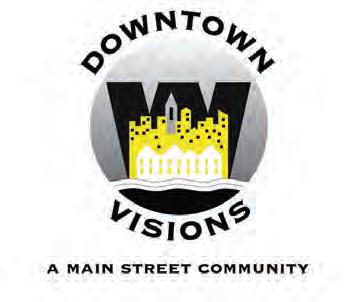
After several evolutions, Downtown Visions officially launched in November 1994 and recently celebrated its 30th anniversary.
event support, underwriting services for renovations, and, in some cases, even microgrants to help improve their facilities,” Maggiti says.
Downtown Visions supports local businesses and community through people-focused programs like the Dine Downtown Deal, which rewards patrons for visiting restaurants from January to March. Another popular initiative, City Sounds Block Parties, brings live music, local food, and a festive atmosphere to different downtown locations five times a year.
“Of course, these events take resources,” says Maggiti. “But what really makes them special is the people — volunteers, neighbors, and local businesses — coming together to create something positive. If you’re looking to get involved, there’s always a place for you in building a stronger downtown.”
Chair Message
BY MARIE HOLLIDAY, CPA
››Colleges and universities across the United States are undergoing a profound transformation as they respond to shifting demographics and the evolving demands of the labor market. U.S. birth rates have declined substantively in recent years, resulting in fewer traditional college-aged students. Employers are seeking more specialized, tech-savvy graduates, and higher education institutions are rethinking how they deliver value.
Businesses are having difficulty finding qualified talent. As a result, employers are increasingly prioritizing “skills” over degrees. In response, colleges are embedding career readiness into curricula, offering microcredentials, and partnering with industries to ensure graduates are job-ready. Colleges are also attempting to diversify their student populations by targeting adult learners, offering flexible learning formats and expanding online and hybrid programs.
In Delaware, these national trends are playing out in innovative ways. The University of Delaware (UD) has expanded its professional and continuing studies programs to attract nontraditional learners and working adults. A notable example is the paralegal program, which can be completed in less than a year. The students in this program can quickly obtain the skills needed to perform their duties without the prohibitive cost of a four-year degree. Additionally, UD’s Data Science Institute partners with local businesses to provide students with hands-on experience in high-demand fields like AI and analytics.

Delaware State University (DSU) is also adapting. DSU just celebrated the grand opening of its new Early Childhood Innovation Center, which aims to strengthen the early childhood pipeline by supporting educators from certification through degree completion. Its students can pursue a CDA, associate, or bachelor’s degree while working directly with children from birth to age five across the state.
Meanwhile, Delaware Technical Community College is a model for workforce alignment. The college works closely with state agencies and employers to design programs that meet immediate labor market demands. Programs such as nursing, dental hygiene, and respiratory care are tailored to fill critical skill gaps in the state’s health care systems.
Beyond curriculum changes, Delaware institutions are also rethinking student support. Recognizing that today’s students often juggle work, family, and education, colleges are expanding mental health services, offering child care support, and providing more flexible scheduling options.
These efforts are supported by statelevel initiatives. Delaware’s Higher
Education Economic Development Fund encourages collaboration between colleges and employers to create programs that directly support the state’s economic goals. Additionally, the Delaware Pathways initiative connects high school students with college and career opportunities, helping to build a more seamless transition from education to employment.
As the landscape of higher education continues to evolve, adaptability is key. Education is not only about our youth; it also involves upskilling current employees as technology advances. Institutions that embrace innovation, prioritize student success, and closely align with workforce needs are not only surviving, but thriving. Delaware’s colleges and universities offer a compelling example of how regional institutions can lead the way in this new era of higher education.

Marie Holliday, CPA is the MidAtlantic regional managing partner at the The Bonadio Group.
Member news&Notes

Navigating Tariffs A SURVIVAL GUIDE FOR DELAWARE’S GLOBAL BUSINESSES
BY CARLA SYDNEY STONE
››For many Americans, President Donald Trump’s tariff policies have made it clear just how dependent we are on international trade. At World Trade Center® (WTC) Delaware, where trade is our middle name, we know something about this.
Global networks like the World Trade Centers Association® (WTCA) — an international trade organization connecting more than 300 World Trade Center® locations in nearly 100 countries and territories, including WTC Delaware — provide us with unique resources to help companies navigate the new economic landscape created by U.S. tariff policies. We do this by providing education, supporting outgoing and inbound trade missions, offering company counseling, hosting information sessions, and connecting Delaware companies to global experts and more than one million affiliated companies in the WTCA network.
As the strategic partner to the International Trade Administration, other U.S. agencies, and the World Bank, we have access to policymakers, trade experts, and resources to help Delaware companies become successful international businesses.
Companies tell us they don’t know how to minimize the impact of tariffs on their business. They can start with several critical steps:
• Know the country of origin, as defined by U.S. Customs and Border Protection, for any imported product. This is crucial because tariffs and trade policies often depend on where a product is manufactured — not just where it’s purchased. Misidentifying the country of origin can lead to incorrect tariff classifications, unexpected duties, customs delays, or even penalties. Accurately determining origin helps your business avoid costly surprises.
• Make sure that any imported product is correctly classified according to the Harmonized System (HS) codes. Administered by the World Customs Organization, the standardized system of numbers get assigned to products traded internationally and is used worldwide to identify each specific product, administered by the World Customs Organization. Proper classification matters because HS codes determine applicable tariffs, trade regulations, and restrictions.
• Be sure that products are correctly identified as either finished goods or components for assembly when importing or exporting. Finished goods may face different tariff rates or restrictions compared to components or raw materials.
• Understand the use of the ATA Carnet, an international customs document that allows businesses to temporarily export or import goods for commercial purposes without paying duties or value-
added taxes. This means companies don’t have to pay tariffs upfront when moving these goods across borders temporarily, which can significantly ease cash flow and simplify customs procedures. One thing to note: ATA Carnet applies only to temporary imports and exports. It does not cover goods intended for sale or permanent import/export.
• Assess whether leveraging Delaware’s Foreign Trade Zone (FTZ) No. 99 or utilizing free trade zones overseas can strategically reduce your tariffs burden. FTZs allow companies to defer, reduce, or even eliminate customs duties on imported goods by designating a secure area where products can be stored, assembled, or manufactured before entering U.S. commerce. Knowing the rules, advantages, and procedures of FTZ No. 99 and international free trade zones is essential to optimizing your tariff strategy and staying competitive.
In the end, staying flexible is essential. Trade policies will continue to evolve. WTC Delaware is here to provide clarity and support to companies facing rising costs in global business. Whether your company is paying higher tariffs on imports, dealing with retaliatory tariffs on exports, or navigating new supply chain challenges, we’re ready to help.
Along with the 300-plus members of the global WTCA network, WTC Delaware’s shared goal is to ensure our businesses continue to thrive in the current tariff climate.

Carla Sydney Stone is president of World
Trade Center® Delaware.
COMMITTEE SPOTLIGHT: Environmental
BY ROBERT W. WHETZEL, ESQ.
››The State Chamber’s Environmental Committee convenes regularly and brings together environmental leaders from Delaware’s business community to discuss challenges, share solutions, and help shape practical, sciencebased environmental policy. Focused on key issues such as air quality, water resources, energy, and site remediation, the committee serves at the forefront of environmental conversations in the state. One bill of interest involves changes to how Delaware reports chemical levels in public drinking water systems.
As of this writing, currently pending before the House Health and Human Development Committee is Senate Bill 72 with Senate Amendment 1, which would amend Title 16 to create the Forever Chemicals Mandatory Reporting Act. If enacted, the bill would direct the Division of Public Health to publish online the levels of certain per- and polyfluoroalkyl substances (PFAS) in each public drinking water system, along with a chart showing maximum contaminant level (MCL) thresholds so users can compare their system’s PFAS levels to the MCLs.
MCLs are defined as the legal threshold limits for substances in public drinking water systems, which the act defines for certain PFAS at single parts per trillion levels. If the division finds that PFAS in a public drinking water system exceeds the associated MCL, it must notify the responsible water utility, which must then promptly notify all residents receiving water from that system.
The bill’s synopsis states that while Delaware is working to make PFAS data
available pursuant to U.S. Environmental Protection Agency requirements, the federal rule does not require reporting until 2027 and will not enforce penalties until 2029. It reasons that by allowing users to see PFAS levels in their water and receive notice when MCLs are exceeded, the act will empower Delaware residents to advocate for safer water. The bill is set to take effect Jan. 15, 2026.
In the event that PFAS exceedances are reported to customers, they may seek recourse from their water systems. However, resolution of PFAS contamination may require long-term and significant capital projects for treatment and source control to bring PFAS levels down. This may lead to increased scrutiny of potential PFAS sources in public drinking water by those system operators, and potential recovery of those costs from responsible parties.
Commercial and industrial entities potentially affected by the act should engage qualified consultants and legal counsel to conduct thorough environmental due diligence and risk analysis. Standard agreements and tools may not sufficiently address PFAS-related business and legal risks — especially given the act’s requirement to report MCL exceedances to end users and the potential pressure this may place on water suppliers.
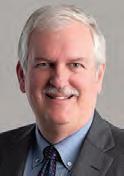
Robert W. Whetzel, Esq. is a director at Richards, Layton & Finger.

History, Heritage, and the World Cup
AS AMERICA TURNS 250 AND WORLD-CLASS SOCCER COMES TO PHILADELPHIA, NORTHERN DELAWARE IS READY TO ROLL OUT THE RED CARPET BY JENNIFER BOES
›› As the United States approaches its 250th birthday in 2026, communities across the nation are preparing to mark this historic milestone. The Semiquincentennial is not just a national event, though. It’s a local one, too, and New Castle County has a vital role to play in telling America’s story. With the eyes of the world also turning toward our region for the FIFA World Cup, set to unfold in Philadelphia, northern Delaware
is gearing up to welcome an entirely new wave of visitors.
New Castle County played a leading part in our nation’s fight for independence. Our Revolutionary “claim to fame” is Separation Day. On June 15, 1776, in the New Castle Courthouse, now a museum, Delaware officially separated not only from England but also from Pennsylvania, more than two weeks before the signing of the Declaration of
Independence. This milestone is marked annually in early June with the Separation Day Celebration in historic New Castle. Festivities include live music, food and drink, a Colonial-inspired parade, children’s rides, an artisan and vintage market, and, of course, fireworks.
Local sites with Revolutionary War connections include what is now the Grand Opera House. The location once served as a hospital for both sides dur-
ing the Revolution. The Battle of Cooch’s Bridge is the only Revolutionary War battle to take place in Delaware and marked the start of the British army’s Philadelphia campaign. The Cooch’s Bridge Historic Site is currently being preserved and restored. For now, it’s only accessible by reserving a spot on one of the scheduled property tours. The Hale-Byrnes House was the site of a council of war in 1777, just five days before the Battle of the Brandywine.
Our close proximity to Philadelphia makes New Castle County a natural extension of a Revolutionary War-themed itinerary. Visitors exploring the birthplace of the United States can easily extend their trip with a short drive to Delaware, where they’ll find deeper layers of the nation’s founding story.
The summer of 2026 is shaping up to be one of the most exciting and eventful seasons in our region’s history. In addition to America’s 250th birthday, Philadelphia will serve as a host city for the FIFA World Cup, welcoming 500,000 fans from across the globe to six matches, including a marquee Round of 16 match on July 4 — the exact date of the Semiquincentennial. Just 30 minutes south, New Castle County is ideally located to benefit from this unprecedented overlap of a major national milestone and a major international sporting event. Wilmington is even in the running to host a World Cup soccer team.
This once-in-a-generation convergence of major events offers a tremendous opportunity to showcase New Castle County as a tourism destination. We hope to see increased demand for accommodations, dining, and leisure opportunities as visitors stay longer to

experience more. With 39 days of tournament action and downtime between matches, international travelers will be looking for enriching ways to spend their free time, and Delaware’s history, museums, and gardens provide the perfect mix of exploration and relaxation.
Delaware 250 is spearheading the state’s official Semiquincentennial efforts, and here in New Castle County, we are preparing to meet the moment. In 2025, the Greater Wilmington Convention and Visitors Bureau co-sponsored a “Travels with Darley: Revolutionary Road Trips” episode with the Delaware Tourism Office. The episode is currently airing on PBS stations nationwide and highlights our entire state’s Revolutionary heritage, bringing national attention to Delaware’s role in America’s founding.
Next spring, we will release a special Semiquincentennial edition of our popular Brandywine Treasure Trail Passport. The passport, which offers access to 12 of the region’s top cultural attractions, will feature programming related to the Revolution, as well as our evolution in
the years since.
In preparation for the World Cup, the bureau is developing digital marketing strategies aimed at reaching visitors before they arrive, and during their stay. These efforts are designed to ensure that our destination remains top of mind throughout this unique moment of international attention.
Celebrating the 250th anniversary of our nation’s founding is about more than waving flags. It’s about discovering the places, people, and moments that shaped — and continue to shape — Delaware, and our country. This milestone, paired with the excitement of the World Cup, gives us an unmatched platform to share our story.

Jennifer Boes is the executive director of the Greater Wilmington Convention and Visitors Bureau.

A New Foundation for Delaware’s Future
BY KELLY BASILE AND HELANA RODRIGUEZ
›› As the challenges facing our state evolve, so must our approach to solving them. While businesses have always focused on their operational success, it’s become increasingly important for businesses to lead in a community’s economic and social prosperity. To meet this moment, the Delaware State Chamber of Commerce (DSCC) is recommitting
itself to building a sustainable future for the First State by repositioning its 501(c) (3)affiliate to take on a broader mission through research, strategy, and systemslevel impact.
The DSCC’s 501(c)3 affiliate, The Partnership, Inc., was created in 1999 to foster and sustain private sector involvement in education and workforce development — and it has delivered on
that mission. Now, it’s time to build on that groundwork and make lasting impacts.
In the last five years alone, The Partnership has developed Intern Delaware to the next level, supporting 55 employers and over 500 interns; rebranded and expanded the Pathways Conference into the Navigating Delaware Pathways Summit for cross-sector collaboration; realigned the Superstars in

Education and Training awards program to highlight innovative and impactful workforce programs; grew the Delaware Young Professionals Network to its largest size to date; strategically coordinated more than 250 school visits through the Delaware Principal for a Day program’s matchmaking process; and organized 1,500 volunteer hours annually to boost employer engagement in education.
In summary, The Partnership has become a trusted leader and collaborator in workforce development in Delaware.
As part of the State Chamber’s strategic planning process in 2024,
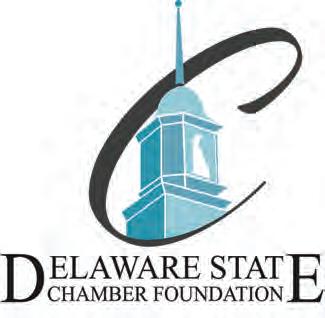
we asked our members what issues keep them up at night and how they see their membership dollars best put to work. What we heard was that Delaware’s business community needs to step up and lead a non-partisan, intentional economic plan that requires the policymakers to make changes that won’t hold back job growth and provide economic prosperity for all Delawareans, and our members see the Delaware State Chamber as a unifier in the collaborative delivery of actionable solutions to follow through with that plan.
To deliver on the expectations our members have of us as an advocacy engine, we concluded that it is time to do a little internal reorganization and realignment. While the survey results reinforced that education and workforce development are top issues facing Delaware’s business community, so are regulations, the cost of doing business, and health care. We need an entity that can dig deeper into good ideas and emerging topics and track progress. We need a space to explore solutions to the greatest challenges the business community is facing — with the flexibility to adapt because priorities can change over time.
We’d like to introduce you to the Delaware State Chamber Foundation. The foundation supports research, programs, and initiatives that advance Delaware’s economic climate and the prosperity of all Delawareans. It will perform future-focused research to identify and implement long-term solutions; track the state’s national and regional competitiveness year-over-year; and turn data and research results into legislative and regulatory changes.
It is important that we emphasize this will be accomplished in collaboration. The Delaware State Chamber Foundation (DSCF) will be a collaborator to organizations throughout Delaware. We know our partners, like the Delaware Business Roundtable and Delaware Prosperity Partnership, are identifying good ideas every day that can move the state forward. We want to take those good ideas, dive into the details of their mechanics, timeline, cost, economic impact, and more, and align voices to lead in the execution of shared solutions that will grow the state’s economy and prosperity.
Innovation requires deviation. This year, we are taking your feedback, performing a self-audit, and making the necessary changes to ensure we go beyond simply sharing good ideas to delivering results. Renaming The Partnership and expanding its mission is one example. This evolution reflects how we are shifting as an organization to meet Delaware’s most pressing needs.
To quote Benjamin Franklin, “Without continual growth and progress, such words as improvement, achievement, and success have no meaning.” We look forward to giving those words true meaning.

CHAMBER SCENE
1.Lani Carrera, a student at the University of Delaware, shared the impact that Delaware Pathways has had on her during the Navigating Delaware Pathways Summit. Photo by Andrew Mancuso.
2.Valerie A. Woodruff was named the 2025 John H. Taylor, Jr. Education Leadership Award winner. Her children accepted the award on her behalf. Photo by Andrew Mancuso
3.The DSCC team attended a ribbon-cutting ceremony celebrating the completion of renovations to Richards, Layton & Finger’s café space at One Rodney Square.
4.The Delaware Young Professionals Network held its 13th annual golf outing at White Clay Creek Countr y Club.
5.The State Chamber hosted Small Business Day in Dover where attendees had the opportunity to participate in the House Small Business Caucus meeting.
6.Policymakers and business leaders, including Senate President Pro Tempore David Sokola and Speaker of the House Melissa Minor-Brown, came together at the End-of-Session Policy Conference to discuss key issues such as pay transparency, energy costs, permitting, income taxes, housing, and more.
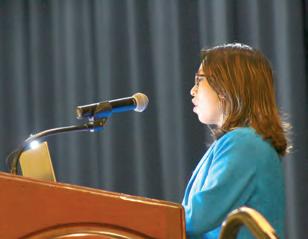
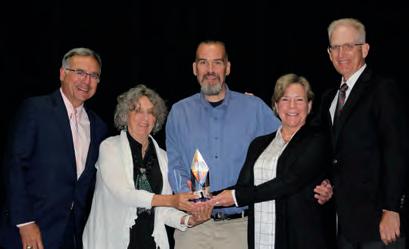
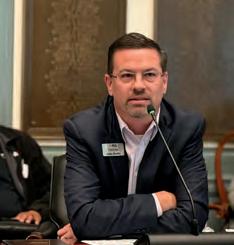
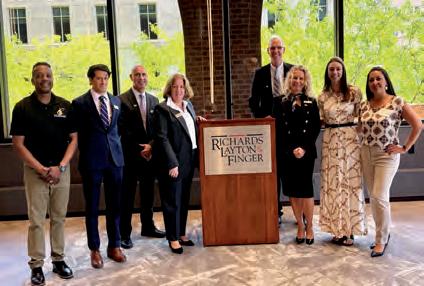
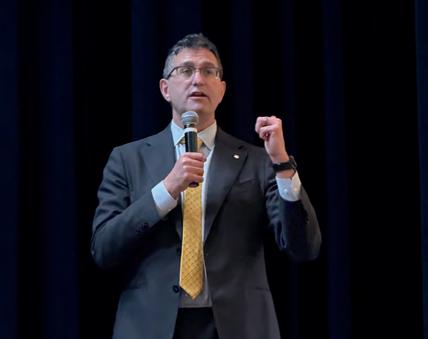

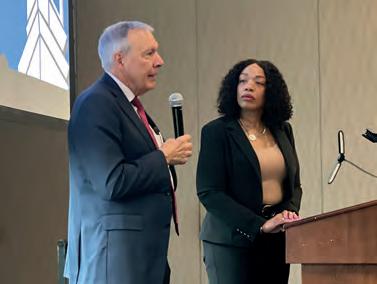
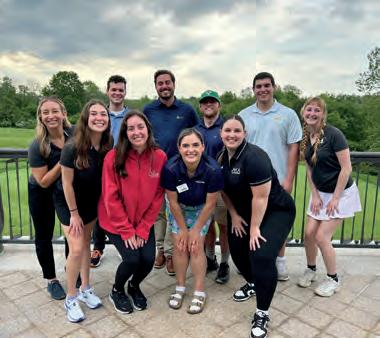
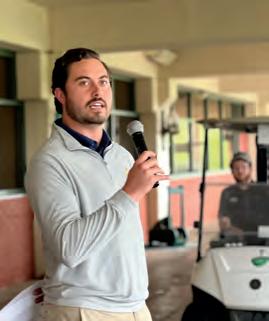
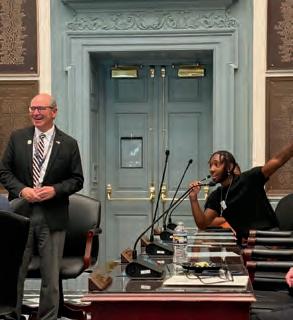
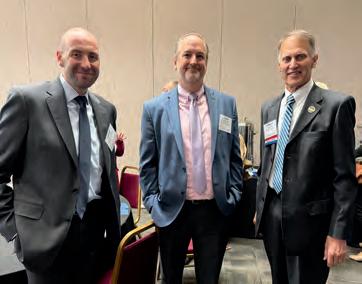
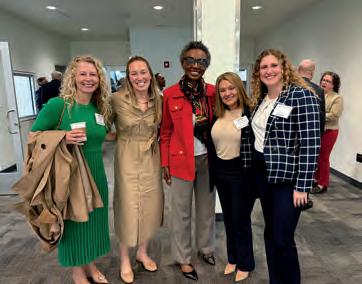
5.
4.

WELCOME New Members
COMPILED BY LITZY GRIJALBA
AGILE
COLD STORAGE
www.agilecoldstorage.com (833) 424-2653
3820 Mansell Road, Ste. 200 Alpharetta, GA 30022
Agile Cold Storage is dedicated to becoming a go-to service provider for cold storage solutions. No matter what you need, Agile has a solution for you. Its experienced team can find a custom solution for your operation, ensuring your needs are met to your specifications. They look forward to introducing you to the Agile Way.
AMERICAN
RED CROSS
www.redcross.org/local/dc-va-md-de. html (302) 943-4150
100 W. 10th St., Ste. 401 Wilmington, DE 19805
The American Red Cross’s mission is to prevent and alleviate human suffering in the face of emergencies by mobilizing the power of volunteers and the generosity of donors. It aims to turn compassion into action to provide care, shelter, and hope to those affected by disasters; prepare communities for emergencies; ensure access to safe blood and blood products; and support members of the armed services and their families.
GLOBAL INVESTMENT FOUNDATION FOR TOMORROW (GIFT)
www.gift-connect.org (302) 545-1677
1201 N. Orange St., Ste. 7265 Wilmington, DE 19801
GIFT CONNECT is dedicated to building
Delaware’s future by addressing a critical challenge: 4,000 of the state’s 12,000 annual newborns enter kindergarten lacking foundational skills. Its groundbreaking approach combines music, technology, and community engagement to ensure every Delaware child thrives from their earliest days. Through music-based learning programs, parent education on six loving habits, and innovative technology solutions including its AI-powered song generator, the organization is creating an education advocacy movement that resonates statewide.
HEALTHCARE INNOVATION ACCELERATION, LLC
Healthcare Innovation Acceleration, LLC, owned by Nick Moriello, provides health care services to clients in Delaware and beyond.
MROHS GAS, INC.
www.mrohsgas.com (410) 968-0252
P.O. Box 349 Crisfield, MD 21817
Mrohs Gas services residential, commercial, and agricultural customers in Maryland’s Tri-County area, including Wicomico, Worcester, and Somerset counties; lower Sussex County, Delaware; and parts of Virginia’s northern Eastern Shore. Throughout its history, the company’s goals have remained the same: to deliver value, top-tier propane products, competitive pricing, and most importantly, reliable customer service.
SEEDCOPA + SEEDCODE
www.seedcopa.com (610) 256-3625
112 S. French St. Wilmington, DE 19801
SeedcoDE is a certified development company that promotes economic development through federal, state, and local loan programs. Seedcopa + SeedcoDE help businesses secure the financing they need to start, grow, and expand. They are proud that the loan programs they administer promote economic development. Together with economic development partners throughout Pennsylvania and Delaware, they help local businesses grow, create and retain jobs, and stimulate community growth.
WUXI APPTEC
www.wuxiapptec.com (609) 606-6666
6 Cedarbrook Dr. Cranbury, NJ 08512
With operations across Asia, Europe, and North America, WuXi AppTec provides a broad portfolio of R&D and manufacturing services that enable the global pharmaceutical and life sciences industry to advance discoveries and deliver groundbreaking treatments to patients. The company’s open-access platform supports approximately 6,000 customers in more than 30 countries in pursuit of the vision that “every drug can be made and every disease can be treated.”
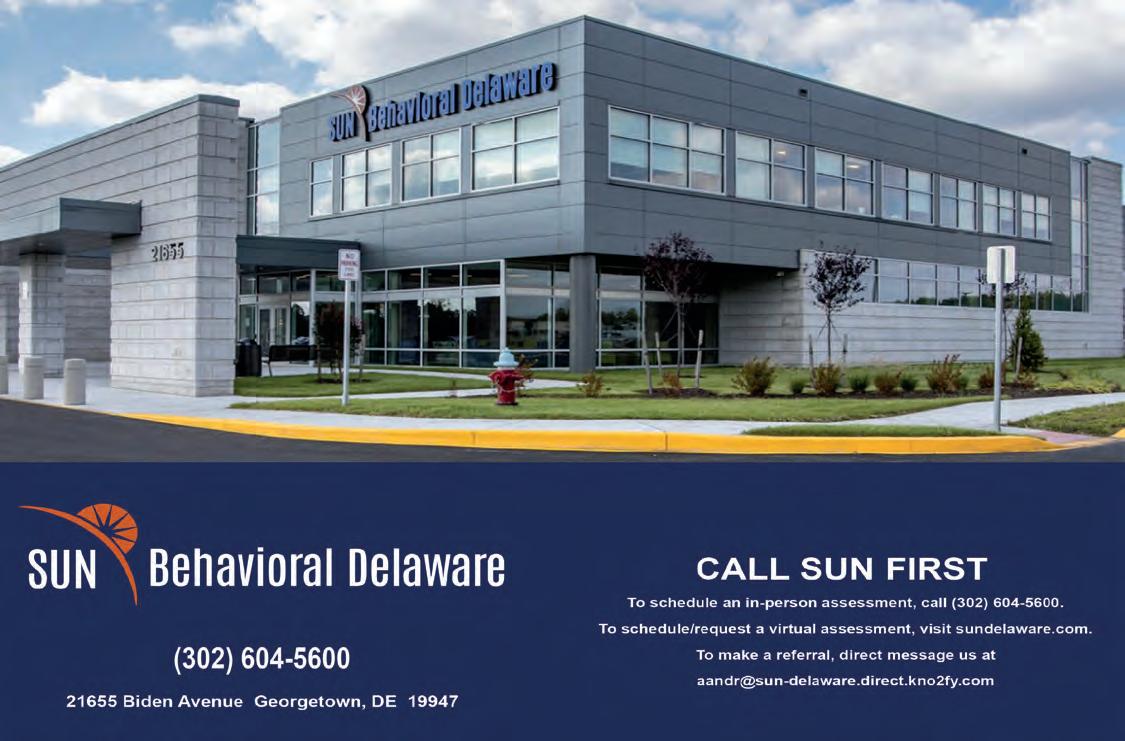
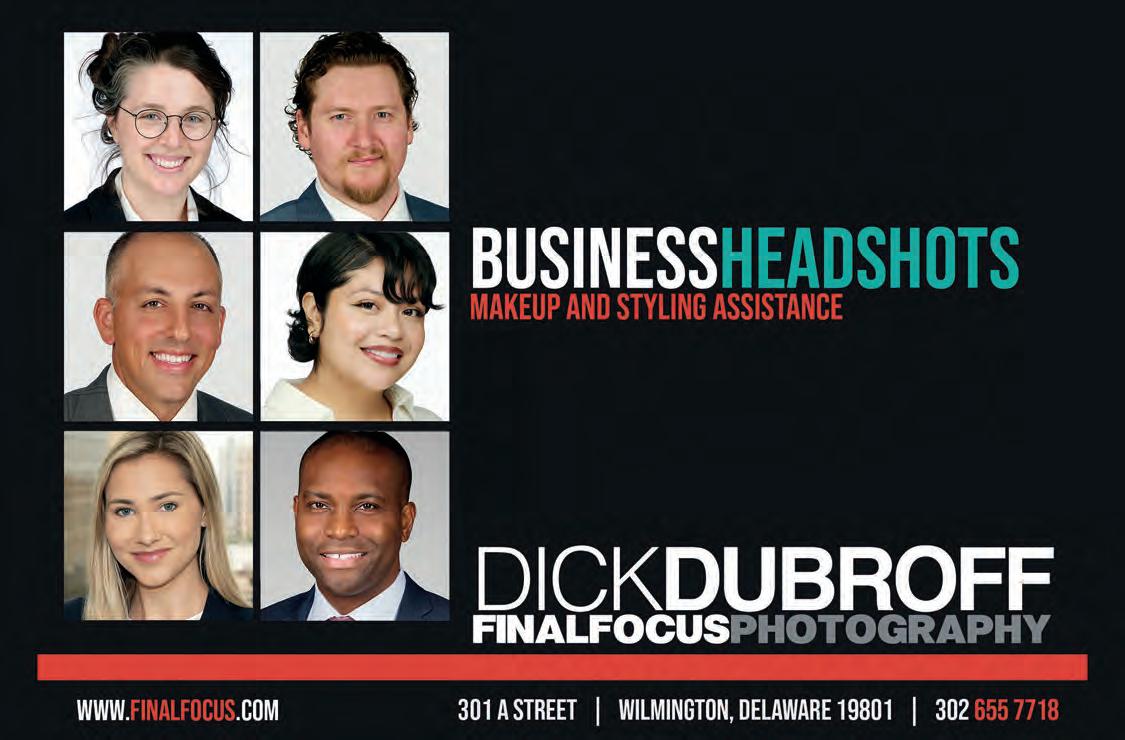
A Growing Vision
Q&A with Don Clifton, Delaware’s Secretary of Agriculture
WITH AGRICULTURE REMAINING Delaware’s largest industry, the state is looking to the future under the leadership of Secretary of Agriculture Don Clifton. Appointed earlier this year by Governor Matt Meyer, Clifton brings a deep understanding of Delaware’s farming community and a commitment to innovation, sustainability, and workforce development. We caught up with him to discuss the opportunities and challenges shaping the future of agriculture in the First State.
Over the next decade, where do you see growth occurring in the agriculture sector, and where do you see contraction?
Agriculture continues to be Delaware’s largest industry and a mirror of American agriculture — diverse, resilient, and evolving. Over the next decade, we see meaningful opportunities for growth in areas such as agritourism, value-added products, direct-to-market operations, aquaculture, and especially local food systems. These sustainable methods allow us to grow clean energy without sacrificing crop output, providing a new revenue stream to farm families.
At the same time, certain sectors — especially those heavily exportdependent or lacking robust local processing capacity — may face contraction. For example, without reinvestment in infrastructure, industries like vegetable processing could struggle to compete. The pressure of development will continue to affect farmland availability, increasing the urgency of farmland preservation efforts. We are committed to meeting these challenges with innovation and smart policy.
We also recognize the essential nature of community farmers’ markets. They serve as hubs of economic activity, increase access to healthy food, and help connect families directly with local growers. Supporting these markets means investing in small farms, creating a stronger economy, and building healthier communities across the state.
Tariff discussions are dominating business news headlines. What are the impacts you are witnessing on Delaware’s food producers?
Federal tariff policies continue to cast long shadows across Delaware’s agricultural landscape. When trade wars escalate, our producers — especially poultry, soybean, and grain farmers — feel the brunt. We saw firsthand how retaliatory tariffs in 2018 devastated soybean exports, with a 76% drop in export value. Many of those markets shifted to competitors abroad and haven’t returned. Today, we’re again facing global uncertainty that could lead to additional losses and volatility.
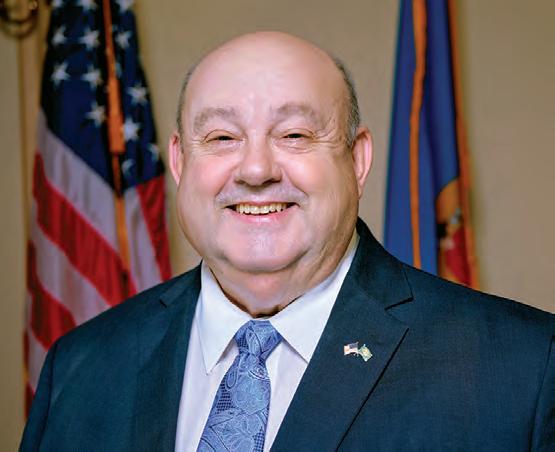
Beyond lost markets, tariffs drive up the cost of imported farm equipment and agricultural inputs — raising the cost of production at a time when commodity prices are already below break-even for many crops. This is especially burdensome for smaller and mid-sized family farms that lack financial buffers. As always, we continue advocating for policies that keep our farmers competitive and ensure long-term sustainability.
Technology is transforming the sector. Between smart tractors, drone technology, and cell biology, what are some advancements of which the public may not yet be aware?
Delaware’s farmers are adapting quickly to technology that’s revolutionizing the way we grow, harvest, and deliver food. Innovations like precision agriculture, driven by drone imaging, smart sensors, and GPS-guided equipment, are reducing input waste and maximizing crop yields. Agrivoltaics — solar panels placed above crops — are starting to show promise for dual-use land and energy production, especially for specialty crop growers.
We’re also watching transformative developments in cell-cultured food and vertical farming. These technologies could reshape urban food systems and improve food security. Our land-grant institutions, including the University of Delaware and Delaware State University, are producing
world-class research and ag-tech leaders who will define the future of sustainable, high-efficiency farming.
Workforce is a challenge across all industries. What efforts are being made to attract and retain the next generation of farmers, scientists, and ag-tech professionals in Delaware?
Delaware is investing in the future of agriculture by building strong, early connections between young people and ag-related careers. Under Governor Meyer’s Executive Order One, we are expanding youth apprenticeships and “earn and learn” opportunities — some of which are already underway in the Department of Agriculture. These programs allow students to explore fields ranging from agribusiness to animal science while gaining real-world experience.
We continue to support initiatives like the Delaware Council on Farm & Food Policy’s First State Food System Grant, new rounds of the Specialty Crop Block Grant, our Aglands Preservation Program, and hands-on farm-learning opportunities like the Delaware State University Farm School. Collaboration with K-12 schools, FFA and 4-H chapters, MANNRS chapters, and our universities is creating clear, modern pipelines into agricultural careers — from soil science and crop research to advanced ag-tech entrepreneurship.
Delaware’s farming future is innovative, local, and strong — and we’re working to make sure that the next generation of ag leaders see their place in it. n


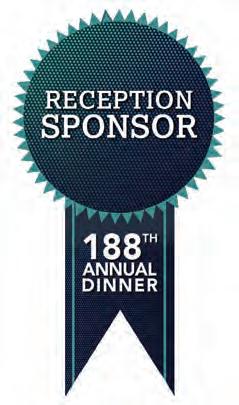
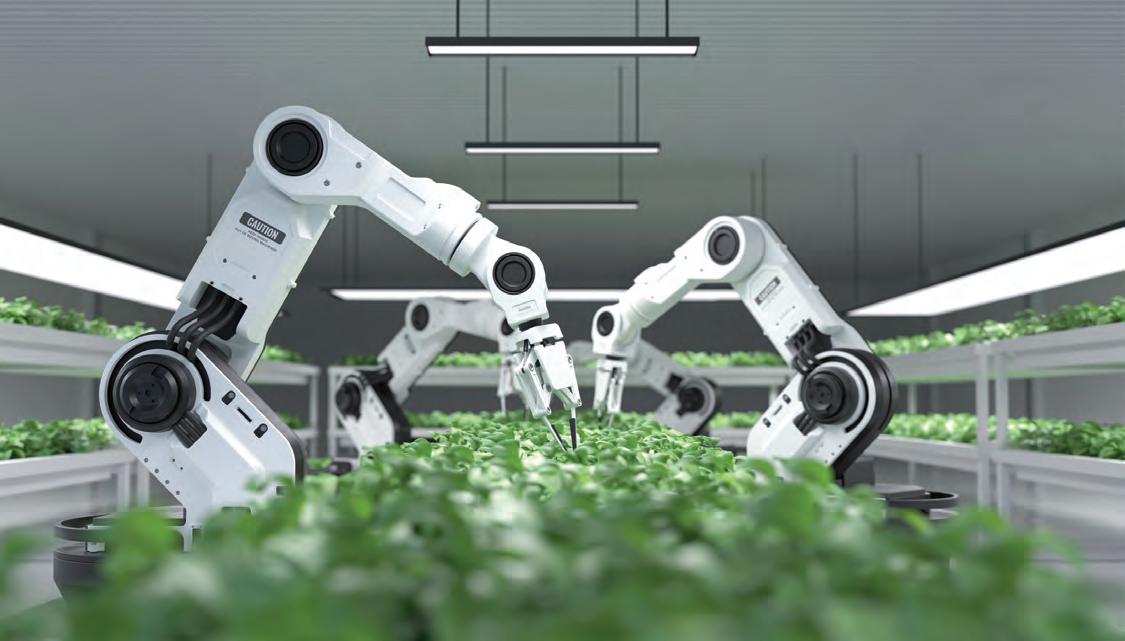
Feeding and Fueling the World
BY RICK DEADWYLER
INNOVATION AND IMPACT are central pillars of every strategic choice we make at Corteva. From drought-resistant corn and rice that slashes water usage, to home-grown biofuels and new AI and digital solutions, we work every day to transform agriculture and feed and fuel the world’s growing population. We’re proud to have deep roots here in Delaware, an innovation hub with a storied tradition in agriculture.
At Corteva, we are, first and foremost, a technology company. In fact, we invest nearly $4 million every day in sustainable innovation to deliver meaningful impact to farmers around the world.
Our scientists are not only solving today’s challenges, but constantly looking ahead — more than 10 years ahead — to anticipate what growers will need to increase their productivity while addressing a changing climate, new pest and disease pressures, and a growing population.
Food is getting harder to grow. But despite the challenges facing modern agriculture, just like the farmers we serve, we are ever optimistic.
Agriculture is undergoing one of its most significant transformations in decades, driven by the growing demand for sustainable solutions —
including precision plant breeding technologies, like gene editing — to grow more food while using fewer resources. One of our standout achievements in gene editing is producing corn that is resistant to four major diseases that cause more than $1 billion in annual yield loss in North America.
Our scientists recently unlocked one of the largest agricultural technology disruptions in decades to boost wheat productivity. Our all-new, proprietary wheat hybrid system has the potential to increase yield by 10% while using the same amount of land. That’s a win for farmers, food security, and sustainable agricultural production.
We’re also innovating in the latest crop protection tools, like natural biological products — derived from materials like beneficial bacteria and enzymes — to help farmers improve yields, manage stress, and adapt to changing regulatory and consumer demands.
As one of the world’s largest biologicals companies, we’re proud to be leading this growing trend. One of our biological products, Utrisha™ N, is a nature-based solution that provides supplemental nitrogen to crops, helping improve plant health and yield potential.
We’re working to help meet the growing demand for biofuels, including sustainable aviation fuel. Last year, we expanded our Winter Canola biofuel feedstock program to help create value for farmers while mitigating the potential impact of biofuel feedstock expansion on cropland currently used to grow food and feed for livestock.
In 2020, we committed that 100% of newly developed Corteva solutions in our pipeline would meet our sustainability criteria aligned with U.N. Sustainable Development Goals by 2025. We’re proud to report that we met this milestone ahead of schedule, with 100% of our pipelines for the last two years aligning with this goal.
And, as we say at Corteva, we’re just getting started.
Our commitment to agriculture goes far beyond the farm. We’re especially proud of our local initiatives here in Delaware that raise awareness around food systems and food security, particularly among youth.
We actively support small farm operations and community garden projects in partnership with organizations like the Food Bank of Delaware and Boys & Girls Clubs of Delaware — both of which I’m honored to serve as a member of the board of directors. These collaborations are making a real difference in our communities.
Corteva also invests in impactful community partners, including the Delaware Center for Horticulture, Delaware Nature Society, and the WRK Group (REACH Riverside). One of our team’s favorite activities
is volunteering to build school gardens with Healthy Foods for Healthy Kids — a hands-on way to grow the next generation of food and sustainability advocates.
In addition, we are proud supporters of Delaware FFA and LEADelaware and their legacy-building work in developing future leaders in farming and agriculture. We also contribute to STEM education through partnerships with the Delaware Museum of Nature and Science, FAME, and Winterthur Museum and Gardens, recognizing that innovation in agriculture is deeply rooted in science and technology.
We fund scholarships for agriculture students at Delaware State University and remain proud partners and major contributors to the United Way of Delaware.
At Corteva, we’re honored to be part of Delaware’s vibrant community, working side by side with local farmers, educators, and changemakers who are helping shape the future of sustainable agriculture both here and around the world. n

Rick Deadwyler oversees government and industry affairs for Corteva’s U.S. East Region.
At Mountaire, care isn’t just a value. It’s a way of life. From how we make our feed to how our chickens are raised and processed, every step we take is rooted in purpose.
Our team members work with pride, knowing that what they do today helps feed families tomorrow.
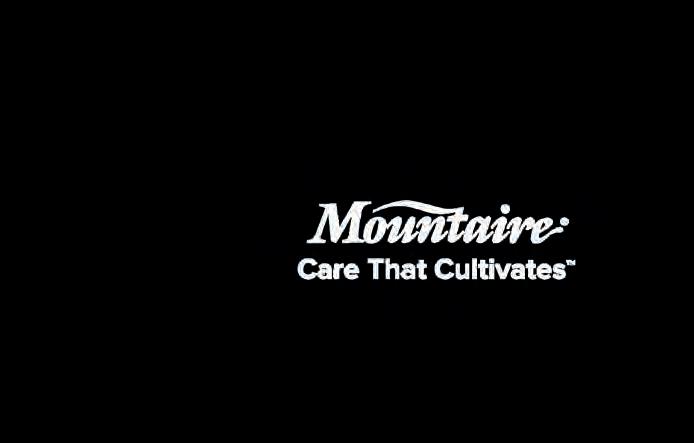
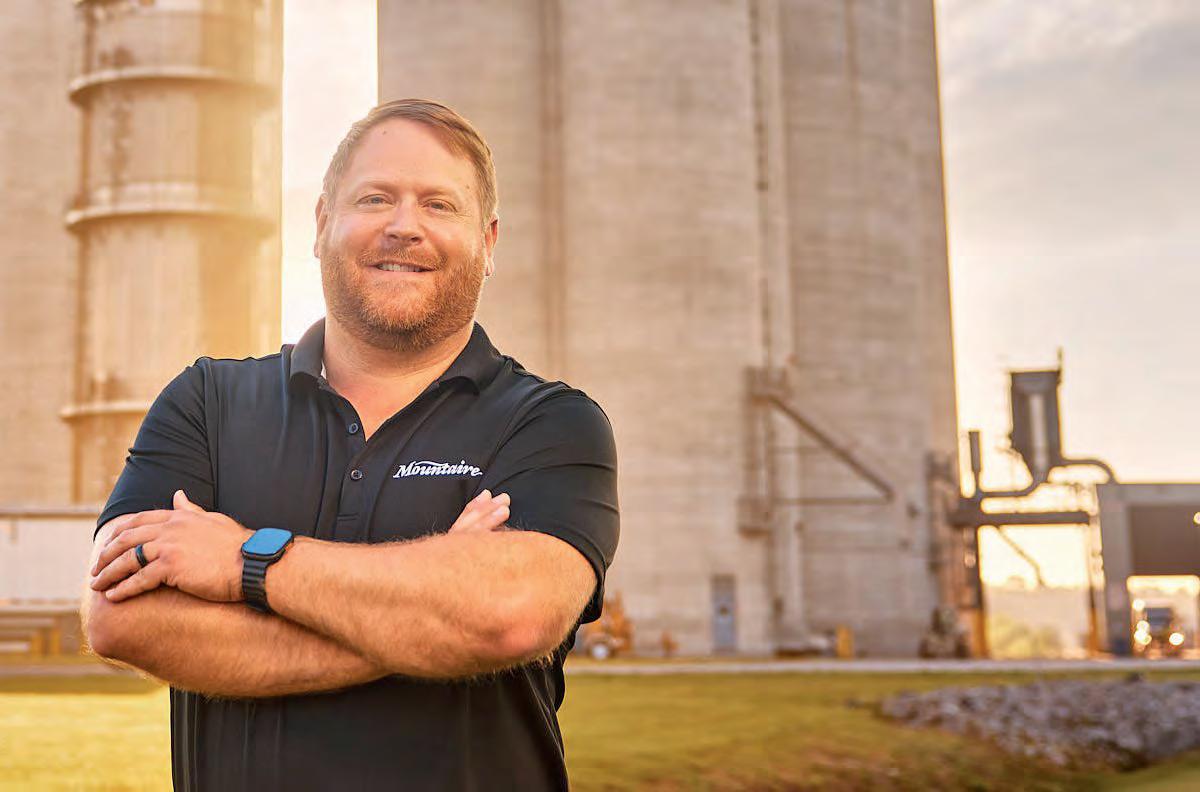

Agriculture
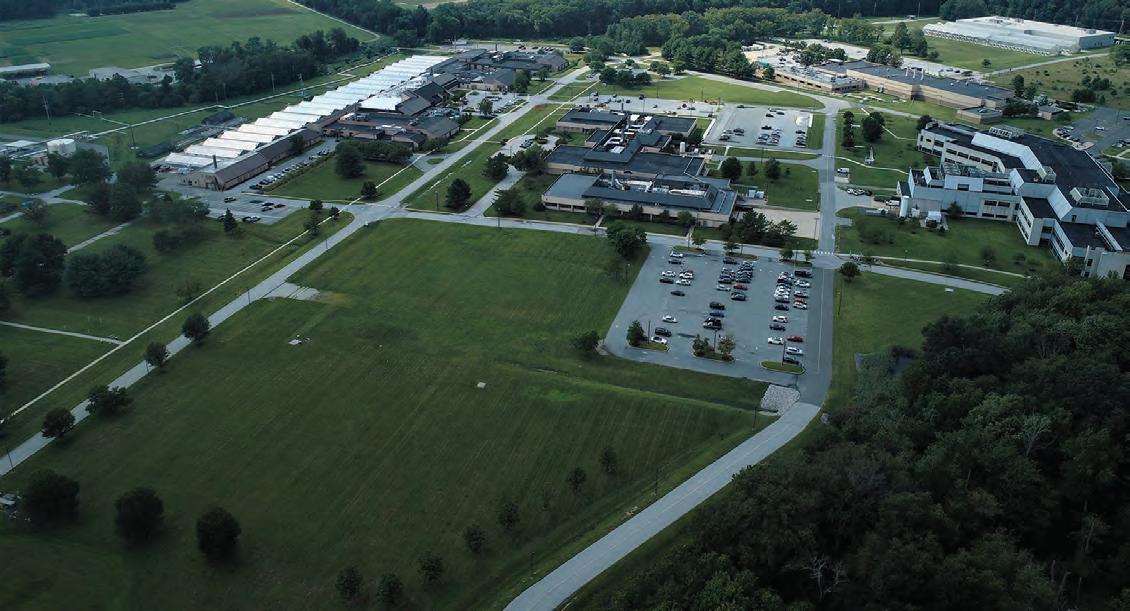
Innovation for Agriculture.Solutıons for the Planet.
BY THAISA HUGENNEYER
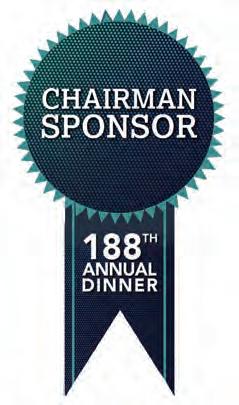
CLIMATE CHANGE, water shortages, and evolving regulations present complex challenges for agriculture. At FMC Corporation, we have reframed these challenges as the driving force behind our most promising crop protection innovations.
At our Stine Research Center in Newark, Del., FMC is developing groundbreaking solutions for farmers in every corner of the globe. Advancements in sustainable crop protection are happening every day at Stine, whether it’s discovering new molecules or advancing cutting-edge biological solutions.
Solutions like FMC’s Dodhylex™ active herbicide are paving a more sustainable path for agriculture by enabling practices that reduce carbon emissions and promote water stewardship. Discovered at Stine, Dodhylex™ active is the first novel mode of action (MOA) herbicide in more than 30 years. This breakthrough solution helps farmers manage weeds that have developed resistance to existing MOAs while supporting climate-smart practices like direct-seeded rice (DSR).
The production of just one kilogram of rice requires a considerable 3,000 to 5,000 liters of water. As a water-intensive crop, it is more vulnerable to worsening droughts and competition for natural resources. DSR is a planting method that significantly reduces water use and lowers greenhouse gas emissions associated with producing rice. One of the challenges with this method is higher weed pressure, which leads to yield loss. Supporting growers and securing the world’s rice supply will depend on investments in new technologies like Dodhylex™ active that help make rice production more sustainable and efficient.
The unique microencapsulation technology for FMC’s Sofero™ pheromone solutions was also discovered and developed at Stine. These solutions harness the powerful signals of pheromones to naturally disrupt pest mating cycles and prevent them from reproducing. It’s a sustainable approach to protecting crops that focuses on prevention over treatment.
Pheromones easily break down in the environment, so the team at Stine developed proprietary microencapsulation technology to shield the pheromones from the impacts of UV light and oxidation.
This technology also releases the pheromones slowly over time, providing farmers with longer-lasting protection from damaging pests. FMC’s R&D teams have been instrumental in bringing this innovation to market, and development continues to advance, with ongoing field trials incorporating cutting-edge drone technology for precision application.
Delaware’s strategic position as both an agricultural center and innovation hub provides FMC with a competitive advantage in developing and implementing these solutions. According to the USDA, nearly 40% of the state’s land is dedicated to farming, and the University of Delaware boasts diverse crop systems that mirror global trends. This makes Delaware not only agriculturally productive, but also a vital testing ground for sustainable practices.
Stine’s proximity to local growers, universities like the University of Delaware and Delaware State University, and policymakers creates an ideal environment for real-world testing of climate-smart technologies. This collaborative ecosystem has yielded remarkable innovations at FMC and demonstrates how Delaware-based innovation can have a global impact.
By investing in sustainable agricultural solutions, we are not just helping growers adapt to climate challenges — we are empowering them to be part of the solution. n

Thaisa Hugenneyer is the executive vice president of integrated supply chain and chief sustainability officer at FMC Corporation.






Upping the Stakes
Delaware
Park Casino unveils new Outdoor Slot
Patio and other exciting upgrades BY
DELAWARE PARK CASINO is creating a buzz this summer with renovations and additions aimed at enhancing the guest experience and reinforcing its role as one of Delaware’s top entertainment destination.
Among the most anticipated updates is the new Outdoor Slot Patio, a $5 million project set to be completed this summer. Spanning nearly 10,000 square feet, this open-air space will feature over 250 of the latest themed slot machines. Guests can enjoy their favorite games in a breezy outdoor setting that merges the thrill of gaming with the beauty of summer.
Inside the casino, the Del Cap Bar & Grill has undergone a full transformation. The updated venue now features new lighting, carpeting, modern paint, and sleek furniture. To complete the makeover, a refreshed logo and new uniforms for the staff have been introduced, creating a more stylish and inviting environment for dining and socializing.
High Steaks Brewery remains a key culinary destination, now offering a fresh seasonal menu. New offerings include tuna poke appetizers, North Shore chicken, and a 25-ounce porterhouse steak. This restaurant
TERRY GLEBOCKI
continues to serve its famous crab cakes, an award-winning local favorite. Complementing these dishes is a lineup of hand-crafted beers, including Hop Trotter, which was featured on Delaware Derby Day in June and as July’s beer of the month.
For cocktail lovers, the upscale RBar, located adjacent to the high limit slot room, is serving a menu of refreshing summer drinks. Seasonal selections include the Orange Crush, Cucumber-Coconut Margarita, Blueberry Mojito, and Strawberry Blondie. Guests can also choose from a thoughtfully curated wine list to suit a variety of tastes.
Adding even more flavor to the summer experience, Delaware Park Casino is introducing a new surf and turf combo. For just $20, guests can enjoy a Surfside spiked lemonade and cheesesteak. This special is available at several dining spots, including High Steaks Brewery, Del Cap Bar & Grill, Rooney’s Market, and On a Roll Deli, making it a convenient and affordable treat for all visitors.
In addition to its dining and gaming offerings, the casino has modernized its event spaces. Last year, renovations were completed in the Legends, Liberty, and Independence rooms. Offering a combined 30,000



Wednesday, September 3, 2025
square feet, these spaces can accommodate up to 500 guests and are ideal for weddings, corporate events, and celebrations. With updated paint, carpeting, lighting, and furniture, the spaces now offer a stylish and elegant atmosphere for any occasion. Professional service and attention to detail help ensure every event hosted at Delaware Park Casino is a memorable one.
With these comprehensive upgrades, Delaware Park Casino is setting a new standard for regional entertainment. Whether guests come to play, dine, or celebrate, there’s never been a better time to explore everything this vibrant destination has to offer. n
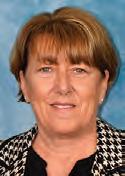
Terry Glebocki is the president and general manager of
Delaware Park Casino.
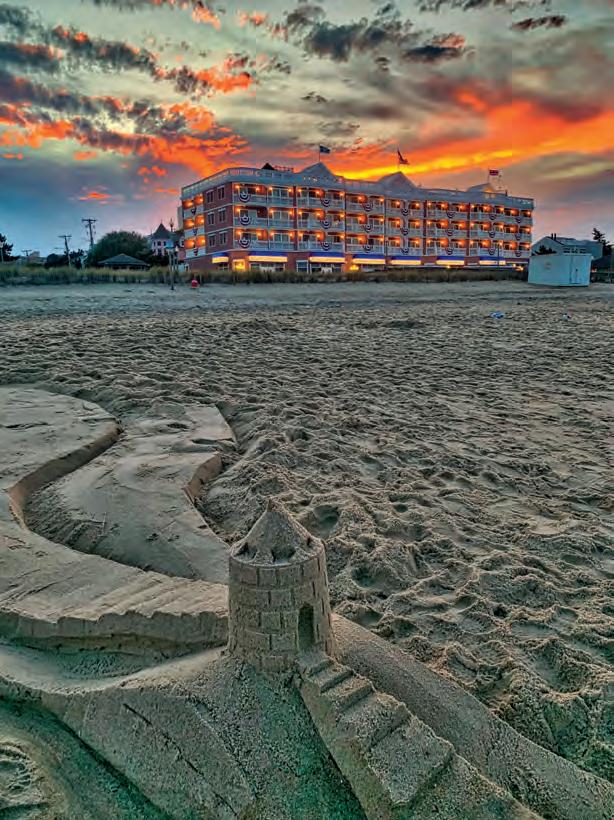


Above, top, High Steaks Brewery offers a fresh seasonal menu, including tuna poke appetizers. Bottom, RBar’s refreshing summer drinks include the Cucumber-Coconut Margarita, Orange Crush, Strawberry Blondie, and Blueberry Mojito.
Hospitality, Tourism, and Recreation: New Castle County
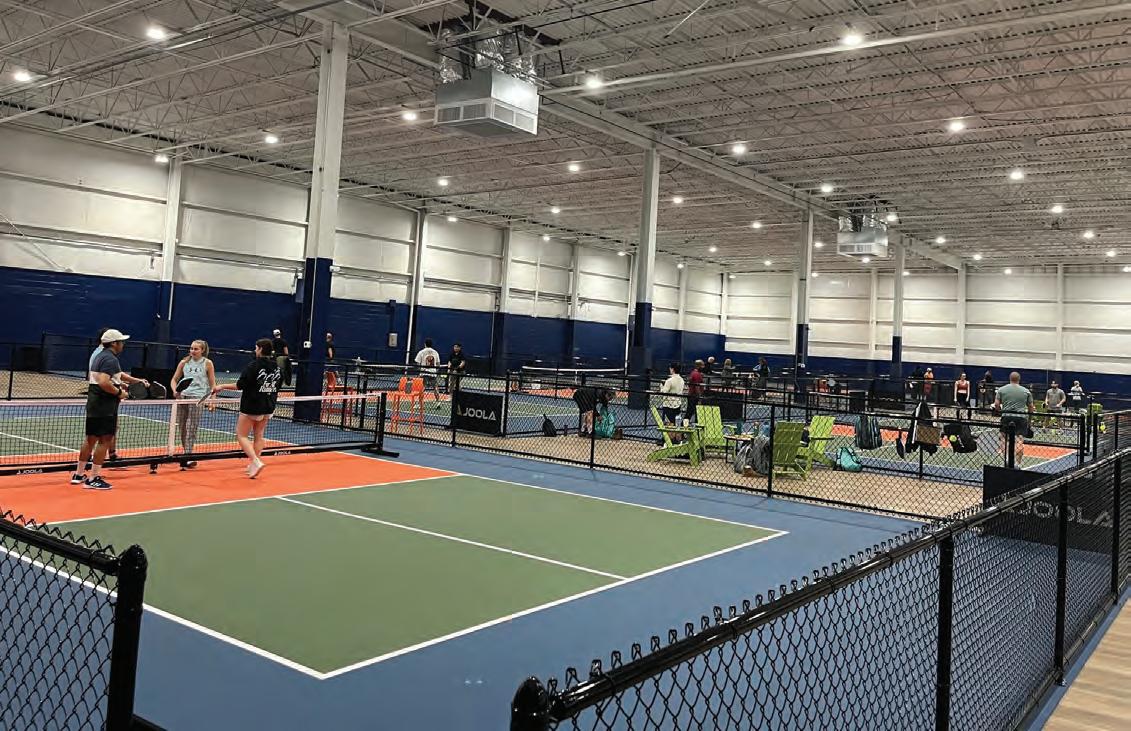
First to the Court
Dill Dinkers Newport marks Delaware’s first dedicated indoor pickleball club BY
JIM CASSADY
DILL DINKERS NEWPORT is proud to introduce Delaware’s first dedicated indoor pickleball facility — bringing America’s fastestgrowing sport to New Castle County in a professional, climatecontrolled environment.
Located at 500 Water Street in Newport, the facility is designed for players of all levels, featuring state-of-the-art ProCushion courts that offer superior traction, shock absorption, and comfort while reducing the risk of injury. Players enjoy fenced-in courts that keep the game flowing, ample free parking, and fully climate-controlled spaces for yearround play.
Whether you’re stopping by for open play, joining a league, or hosting a private event in our 40-person party room, Dill Dinkers Newport offers a welcoming space to connect, compete, and have fun. We offer loaner paddles and balls, professional coaching, and even extra activities like ping pong and cornhole.
Flexibility is part of what makes us different — membership is optional. Anyone can reserve a court and enjoy our facility without long-term commitments. Our fully stocked pro shop makes it easy to gear up, and our superior lighting ensures great visibility day or night.
Beyond recreation, Dill Dinkers Newport is a hub for corporate wellness and team-building events, helping organizations bring employees together in a healthy, social environment.

We are proud to support Delaware’s business and community leaders in finding new ways to stay active, connected, and engaged. n
Jim Cassady is the regional developer of Dill Dinkers Newport.



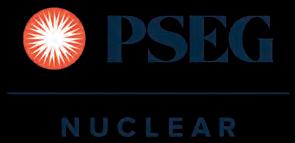

























Behind the Scenes in Downtown Dover
BY DIANE LAIRD
THE EXCITING TRANSFORMATION of downtown Dover is well underway, with multiple projects at various stages of development, and several groundbreakings planned in 2025. The Downtown Dover Partnership (DDP) has led the way by launching the Capital City 2030: Transforming Downtown Dover! master plan. The plan, is comprised of 10 key redevelopment sites through the spine of the central business district, including those held by public and private entities, as well as several public recreational projects to support 2,000 new residents in the Capital City.
The plan calculates $500 million in public-private investment over the next several years. To date, more than $100 million in investment is already underway across a variety of priority strategies. These include mixed-use redevelopment projects, transportation enhancements and linkages, arts and placemaking initiatives, underground water infrastructure improvements, and a mobility center — with bike storage and repair, and commercial and retail opportunities — slated for an Oct. 31 groundbreaking.
The DDP, along with project team members including Mosaic Development Partners JV, LLC (Philadelphia), Colonial Parking Inc., and EDiS Construction (both Wilmington-based), continues to work through a myriad of project details and approvals for the four-story mobility center, as well as a 120-unit, mixed-income, mixed-use redevelopment project at 120 S. Governors Ave., in the heart of the Capital City. The Carney administration committed $28 million to support the launch of these projects, which serve as catalysts to encourage private investment.
One of those private investors in the forefront is Old Post LLC, a group of local developers undertaking the redevelopment of the former post office near Dover City Hall at the eastern gateway into town. The $7 million Old Post project will provide up to 40 market-rate apartments, on-site
parking, and commercial rental opportunities projected to include a restaurant with outdoor seating. Representatives of Old Post LLC indicated the group chose to invest in Dover because the city is at a pivotal moment — its combination of strategic location, growing economic momentum, and strong community vision makes it an ideal time to contribute to its revitalization. This project reflects their belief in Dover’s future, and their commitment to being part of its continued growth.
At least 15 other private investors are taking advantage of the DDP’s Critical Improvements Program. Through this initiative, state, county, city, and private funding incentives are layered as “gap funding” to help cover the cost of retrofitting existing buildings, including upgrades to meet current ADA and life-safety standards. Several of these spaces have been vacant for 10, 15, or even 30 years. The program is also supporting the launch of several new restaurants in central Dover, which is critical to revitalizing the district. When complete, it is estimated that more than $12 million will have been leveraged alongside the DDP’s $2 million.
Site assessments have resulted in remediation and planned demolitions on several underutilized properties to make way for these projects. The DDP and project partners will continue these assessments to direct additional services required, utilizing a recently awarded $1 million multipurpose EPA grant — the first one in Delaware. n

Diane Laird is the executive director of the Downtown Dover Partnership. For more information, visit https://tinyurl.com/ CapitalCity2030.
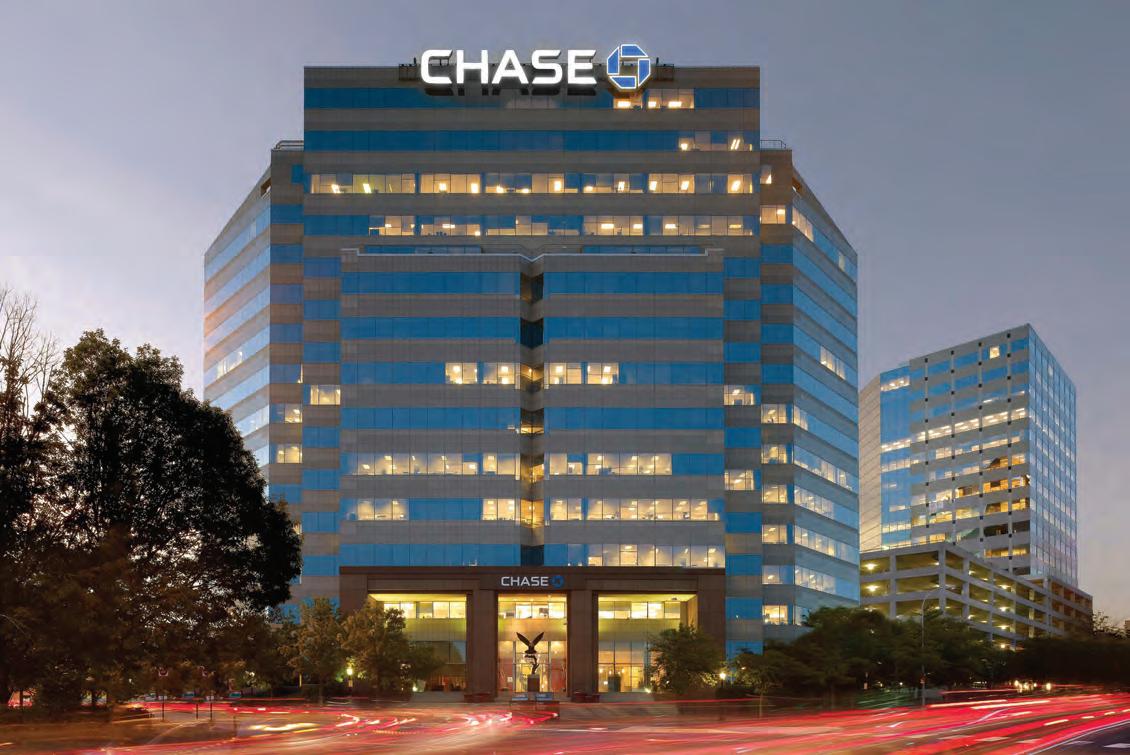
Local expertise, Local decision making.
Put Chase to work for you.
With over 10,000 local employees and eleven branches, Chase is committed to helping small and mid-sized businesses across Delaware achieve their goals.
For insights that will help take your business to the next level, visit chase.com/business and jpmorgan.com/commercial-banking.
Jeff Donovan Vice President
Business Banking (215) 640-3458
Jeffrey.e.donovan@chase.com
Tim Boyle Vice President
Commercial Banking (215) 640-3562
timothy.w.boyle@chase.com
Alasdair Clynes Officer
Business Banking (302) 752-5445
alasdair.m.clynes@chase.com
©2025 JPMorgan Chase & Co.
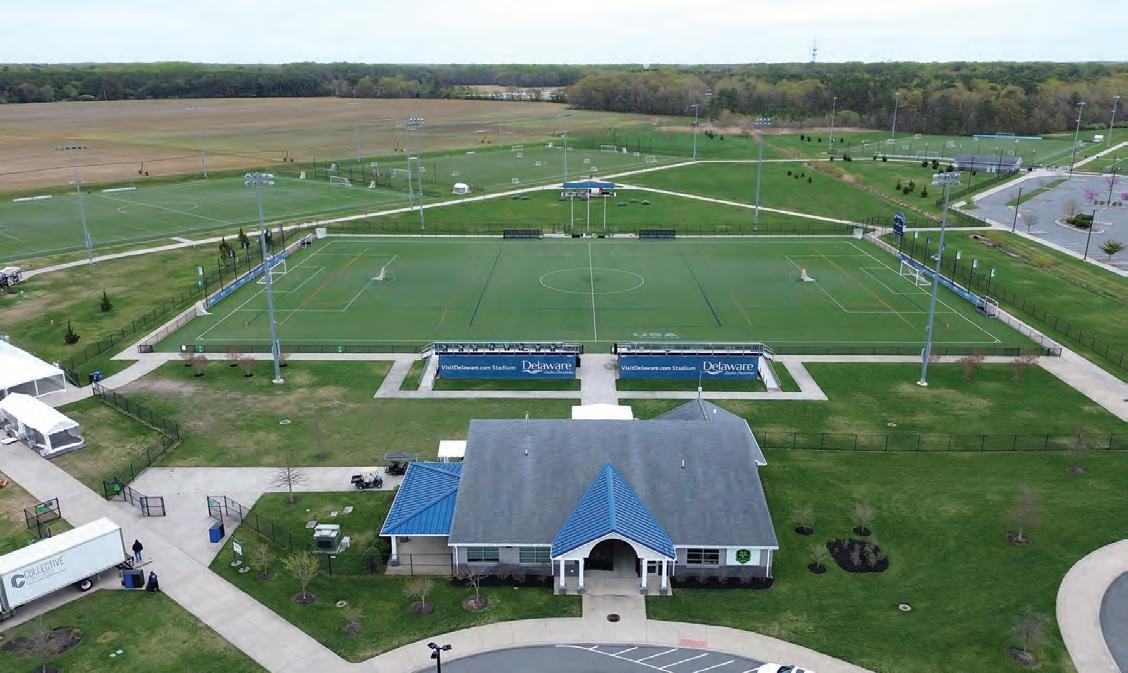
Building a Future Through Athletics
BY DANIEL YEARICK
DE TURF SPORTS COMPLEX is embarking on an ambitious stadium expansion project that promises to transform our community’s athletic landscape for generations. This comprehensive development represents more than just enhanced facilities — it’s an investment in our youth and our local economy.
The expansion will add more than 1,000 bleacher seats with modern press boxes, bringing total seating capacity to more than 2,000. A new 5,500-squarefoot tournament building will house professional-grade locker rooms and a 165-person ceremony and meeting room, creating a versatile space for awards banquets, team meetings, and community events. These upgrades will feature state-of-the-art training facilities and improved accessibility features, creating a professional-grade environment where young athletes can thrive.
This expansion positions DE Turf to host NCAA and professional sporting events, significantly elevating our community’s profile in the athletic world. The facility’s enhanced capacity and amenities will attract high-level tournaments, camps, and competitions previously beyond our reach.
The economic impact will resonate throughout our state. Currently, DE Turf attracts more than 350,000 visitors each year, generating millions in state tourism dollars. The proposed upgrades will further increase visitor numbers and boost income for local businesses. Hotels, restaurants, and retail establishments will benefit from increased foot traffic during major events, creating a greater economic ripple effect throughout the state.
This expansion represents the next chapter in DE Turf Sports Complex’s remarkable journey. The future is bright for both the complex and our community as we continue building a legacy. n
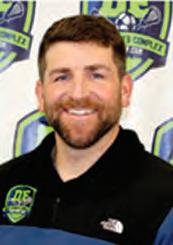
Daniel Yearick is executive director of DE Turf Sports Complex.
and

More Than Parks
Kent County’s commitment to people, wellness, and community growth
BY KAITLYN SCHECH
IN KENT COUNTY, Parks and Recreation is more than a service, it’s a community catalyst. With every trail maintained, program hosted, and event coordinated, there is an intentional investment in the physical, mental, and social well-being of our residents.
We serve thousands of people each year across our parks, recreation center, sports fields, and open spaces. Each visit is an opportunity for connection, wellness, and lifelong memories. Whether it’s a grandparent walking our trails, a parent cheering from the sidelines, or a young child joining their first class, our spaces serve every generation at every stage.
As our population grows and community needs evolve, we are eager to grow with them. We’re working to expand equitable access to recreation, elevate our programs to meet demand, and foster partnerships that benefit both community and commerce. From youth sports and senior programs to nature trails and cultural events, our division supports community health, the local economy, and public trust. These aren’t just activities; they are touchpoints that reduce isolation, encourage healthier lifestyles, and
make Kent County a more attractive place to live, work, and do business.
We know there is untapped potential ahead. That’s why we’re inviting more partners to work with us — local businesses, civic leaders, health organizations, and beyond — to help us build a future where wellness and community are accessible to everyone.
Kent County Parks and Recreation is growing, and together we can ensure no resident is left on the sidelines. n

Kaitlyn Schech is the recreation program supervisor II at Kent County Levy Court. For more information, visit kentcountyde.gov/ Residents/Parks-and-Recreation or reach out to parksrec@kentcountyde.gov.
Hospitality, Tourism, and Recreation: Sussex County
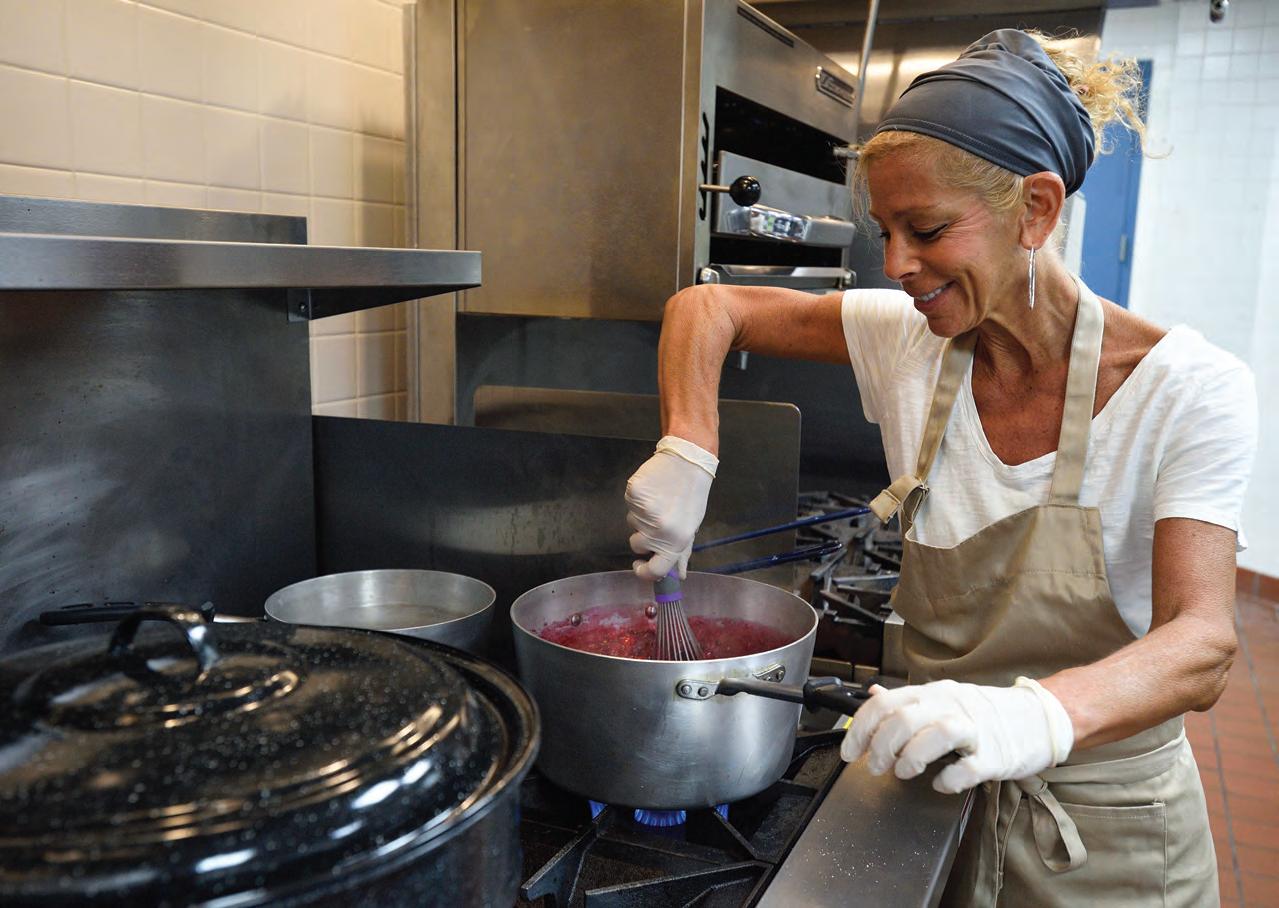
Kitchen Incubator Hatches Dreams
BY ANDREW SHARP
SOME OF THE JELLIES that emerge from Marie Boulden’s kitchen will give your PB&J an edge it’s never had before. She sells flavors like orange crush, mango ghost pepper, lemon lavender, and tomato honey butter. She’s even made a jelly with redbud blossoms.
“Put that on a graham cracker with triple-cream brie, and it’ll change your life,” says Boulden, the owner of Jam Session Jams.
The kitchen where these flavors happen isn’t only Boulden’s, though.
She rents space in the Sussex Kitchen Incubator on Delaware Technical Community College’s Georgetown campus, sharing it with dozens of culinary startups that send their creations out into Southern Delaware and beyond. One makes specialty fermented hot sauces. Another sells soft pretzels. Some provide catering services.
When Bill Pfaff became Sussex County’s director of economic development, he drew on his decades of experience with the Delaware
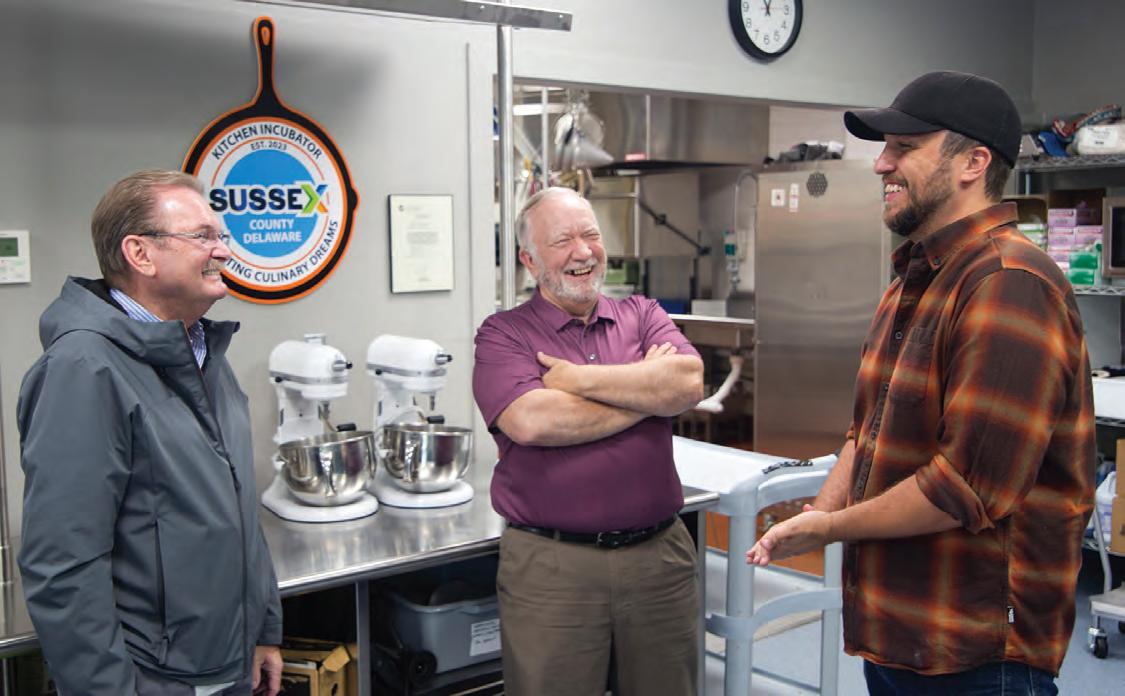
Small Business Development Center to identify a market problem: Many cooking and baking entrepreneurs had a hard time finding a commercial space that met health department requirements.
“One of the things that I would constantly hear [was] ‘If I could only find a kitchen,’” Pfaff recalls.
That was Boulden’s experience when she explored the possibility of renting space in local restaurants in the beach area. “I wasn’t having any luck at all. Either they wouldn’t return my phone calls, or they weren’t interested at all.” When she stumbled across the Sussex Kitchen Incubator, “It just seemed like the perfect model for me.”
The kitchen, a partnership between Sussex County, the state, and Delaware Tech, held a soft opening in November 2023 and officially launched in the spring of 2024. It not only meets sanitary standards, but also offers a wide array of equipment, from ovens to industrial mixers, high-temperature dishwashers, and more. There’s freezer storage space, cleaning equipment, rubber gloves, and hair nets. The cooks even have a place to dispose of their used oil.
“It’s a one-stop shop for somebody that has an idea,” Pfaff says.
Beyond gear, the kitchen exists to support startups as they turn Grandma’s recipe into a full-fledged business, Pfaff explains.
Many people don’t have a good grasp on all the steps involved in starting a business, says kitchen manager Jim Richards. In his past career, he owned and operated restaurants, and now mentors rookie business owners on everything from how to best use the equipment to pricing their product, and saving money on supplies.
One of these new business owners is Seamus Scott, who has a background in natural foods and recently launched a line of healthier popsicles with co-owner Donna Shea. Fern & Frost Pops’ hydrating electrolyte popsicles are made with ingredients like coconut nectar and real fruit, and have no refined sugars, Scott says. “We just want to try to create something that is fun, tasty, and good for you, too.”
He has two children with firm opinions about what they like, so he has a ready test market for his wares.
Scott says his experience at the kitchen incubator has been fantastic so far, giving him a chance to absorb Richards’ business advice and connect with retailers.
Sometimes the businesses at the kitchen go together like bread and jam and are able to network and help each other out. Boulden notes that a local baker developed a hot-selling orange crush cake using her popular jelly.
Amid the growing year-round bustle at the beaches, Pfaff notes, there’s a huge opportunity for creating businesses.
“Some people will be here [in the kitchen] forever,” he says. “But the ideal situation is, we hope that someone … will get to a point where they can go out on their own.” (Which has already happened several times.)
The goal for the incubator is 75 members by the end of 2026. It’s making fast progress — the kitchen already had 32 members in the spring of 2025, with almost 20 in the process of coming aboard, and a number of others showing interest, Richards says.
“All you have to do is bring in your raw materials,” Pfaff says, “and at the end of the day, you can create whatever you want to create.” n

A Slice of Something New
New hotel,
restaurant,
and retail coming to the block between Rehoboth and Baltimore avenues
CONTRIBUTED BY GROTTO PIZZA
OVER MEMORIAL DAY WEEKEND, visitors to the Rehoboth Beach Boardwalk undoubtedly noticed the fenced-off areas between Rehoboth and Baltimore avenues. The demolition of several landmarks — a Grotto Pizza, the Sirocco Motel, Zelky’s Beach Arcade and the old Dolle’s site —will pave the path for a boutique hotel and new retail.
It’s a significant transformation to a familiar landscape, and change is never easy. Witness the laments after Dolle’s decided not to renew its lease and the building was sold. (Dolle’s now shares space with Ibach’s Candy by the Sea, its sister store.)
However, buildings age. The Sirocco Motel, for instance, was structurally compromised and considered unsafe. Moreover, today’s travelers want the latest technology, unique experiences, and personalized services and amenities.
In short, they have higher expectations, which explains the flurry of new accommodations in coastal Delaware.
Jeff Gosnear, president of Grotto Pizza, plans to deliver. “Given the space is oceanfront and directly on the boardwalk, we decided to build a
60-room, high-end hotel and retail for longstanding businesses — including Grotto Pizza,” he says.
Grotto Pizza has been on a mission to modernize its restaurants.
Consider the sparkling new Dewey Beach location. The desire to rebuild the boardwalk restaurant was the impetus behind the entire project, Gosnear explains. The parcel also included the Sirocco Motel — not to be confused with Sirocco Food & Drink — which was too small for a modern redevelopment.
Then the Dolle’s parcel became available. “We have enough land to develop a viable hotel and retail operation,” Gosnear says. Parking requirements helped cement the decision to limit the hotel to 60 rooms. “We also wanted the hotel to be in keeping with downtown Rehoboth,” he says. “A mega-room hotel is not appropriate. We designed the project to enhance the area, not detract from it.”
Grotto Pizza will employ up to 60 people at the new restaurant. One Rehoboth Hotel, a separate entity, will hire another 40 to 50 people.
But don’t plan your trip just yet. Gosnear predicts that the project will be complete by May 2027. n
Hospitality, Tourism, and Recreation: Sussex County
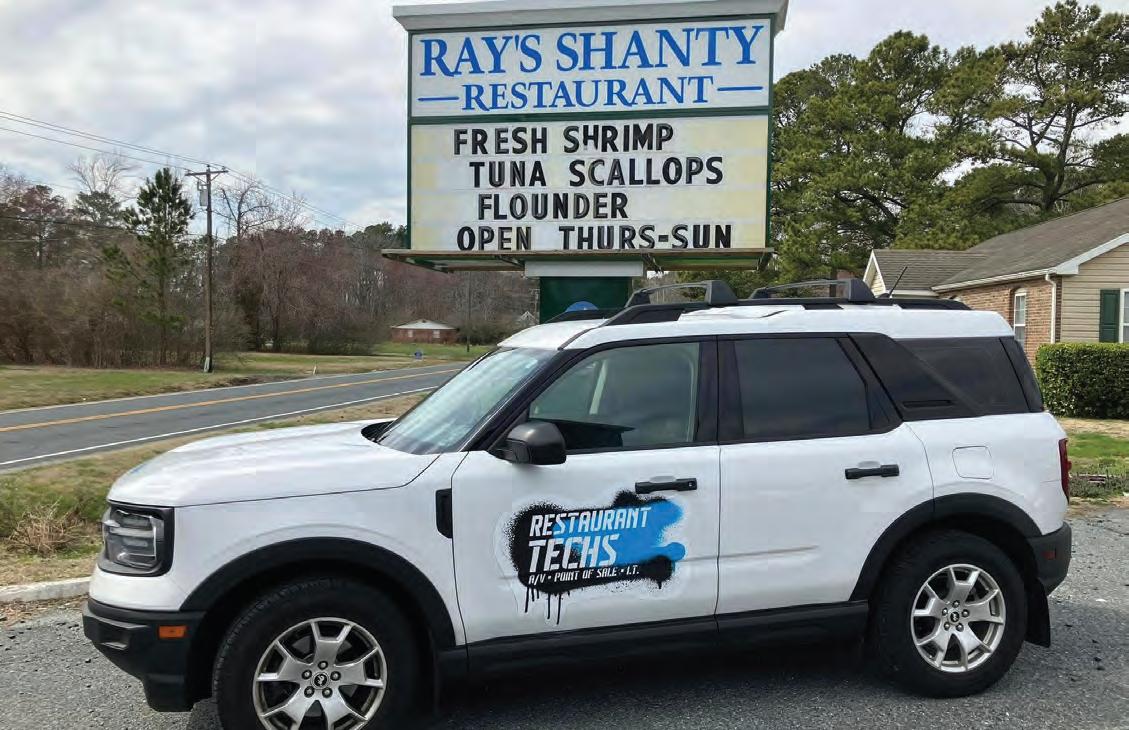
Serving Up Solutions
Scott Kammerer launches SoDel Ventures to support Southern Delaware’s hospitality industry CONTRIBUTED BY SODEL CONCEPTS
SCOTT KAMMERER, CEO of SoDel Concepts and a recent finalist for Delaware Today’s Best of 2025 Philanthropist for Delaware, has always been committed to creating better opportunities for his employees and elevating the restaurant industry across Southern Delaware. Building on this mission, Kammerer launched SoDel Ventures, a new initiative designed to support hospitality professionals through innovation, service, and wellness.
SoDel Ventures encompasses three companies: Restaurant Techs, Coastal Restaurant Repair, and SoDel Wellness. These ventures are tailored to address the unique challenges faced by restaurant teams and operators, all while being staffed by individuals with real-world restaurant experience.
Restaurant Techs provides cutting-edge support in audiovisual systems, IT services, and point-of-sale technologies, critical tools for today’s fast-paced hospitality environment. Meanwhile, Coastal Restaurant Repair offers prompt, dependable maintenance for restaurant equipment, ensuring minimal down-
time for businesses that rely on every hour of operation.
Kammerer’s dedication to employee well-being is reflected in SoDel Wellness, which began as a free fitness and health program for SoDel Concepts employees. Recognizing the physical and emotional demands of the hospitality industry, the program has now expanded to include other restaurants and local businesses, offering resources to help individuals manage stress, stay active, and lead healthier lives.
With SoDel Ventures, Kammerer continues his mission to uplift not just his own team, but the entire restaurant community in Southern Delaware. n For
Higher Learning

Shaping What’s Next
The University of Delaware is preparing students for the current and future world of work
BY DR. RACHEL COPPOLA AND R. LYNN SYDNOR EPPS | PHOTOS BY KIRK SMITH
IN A RAPIDLY EVOLVING WORLD of work shaped by technological disruption, shifting employer expectations, and the accelerating demand for adaptable talent, colleges and universities are rising to the challenge. Institutions are not only reevaluating how they prepare students for the workforce, but are also embracing new models of education, partnerships, and lifelong learning. The University of Delaware (UD) offers a compelling case study in how higher education is transforming to meet both present and future demands.
EMBEDDING CAREER READINESS INTO THE CURRICULUM
At the University of Delaware Career Center (UDCC), career readiness is woven into the student experience. Through a comprehensive UD Career
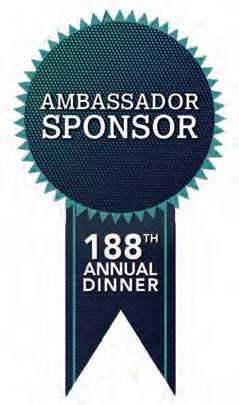
Center Canvas site, all undergraduates have access to a structured curriculum of career-focused modules. These include practical tools and guidance for job and internship searches, professional communication, and personal development activities based on Life Design principles. Beyond these online modules, UDCC staff actively collaborate with faculty to embed career development directly into academic coursework, ensuring that students connect their studies with real-world applications early and often.
EMPHASIZING
INTERDISCIPLINARY AND FLEXIBLE LEARNING
The modern workplace demands a blend of technical know-how and soft skills. To support this, as well as the learning that is already happening in the classroom, UD has made LinkedIn Learning available to all students,
offering thousands of instructional videos in areas ranging from data analytics to communication and leadership. Curated online resources are also integrated into the UD Career Center’s Canvas site, creating a cohesive ecosystem of flexible, just-in-time learning opportunities, empowering students to stay ahead of labor market trends.
PARTNERING WITH EMPLOYERS AND INDUSTRY
Strong industry partnerships are foundational to preparing students for meaningful careers. The UD Career Center maintains a team of employer liaisons who offer industry-specific expertise and serve as a bridge between
participation in the national Ithaka S+R initiative, “Making AI Generative for Higher Education,” and its AI Center of Excellence, reflect the university’s commitment to leading and learning to integrate AI responsibly.
INVESTING IN CAREER SERVICES TRANSFORMATION
The UD Career Center partners across campus to embed career development into the full student journey. Through platforms like Handshake, students receive personalized job recommendations and access a wealth of career content. Tools such as Big Interview and Forage offer on-demand virtual interview practice and real-world project simulations. These platforms create a scalable, inclusive, and personalized approach to career readiness that meets students where they are, whenever they need support.
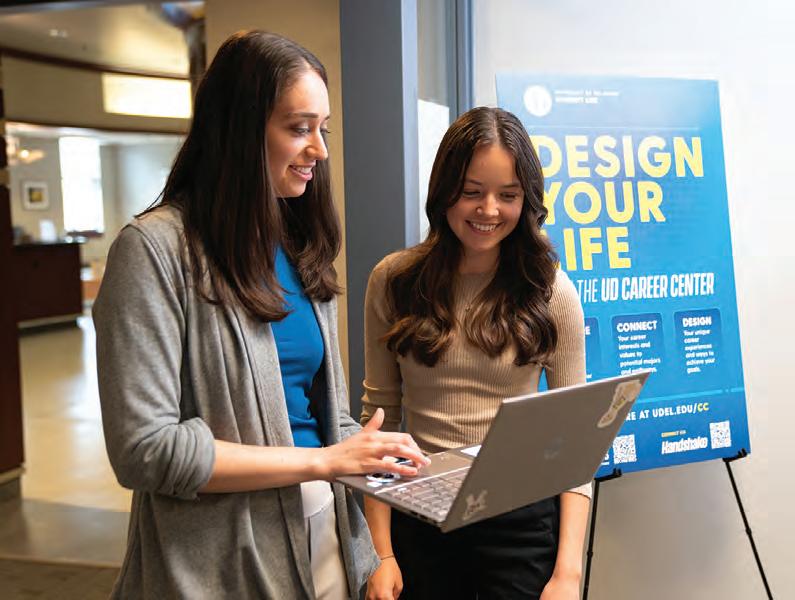
the university and the labor market. These liaisons work closely with career educators, faculty, and an events team to create targeted recruitment and engagement opportunities throughout the year. The recent relaunch of the UDCC’s Employer Advisory Committee further strengthens this work, providing ongoing insight to align educational outcomes with evolving market demands. Additionally, specialized career services within colleges, such as the Lerner College of Business and Economics and the College of Arts and Sciences, ensure tailored industry connections for students across disciplines.
EMBRACING TECHNOLOGICAL LITERACY AND AI READINESS
As artificial intelligence reshapes the workplace, UD is leading the way in preparing students and faculty for this future. In 2023, the university launched an AI for Teaching and Learning Working Group to develop innovative teaching practices and policy guidelines for ethical AI integration. The library created an AI literacy tutorial, and the UD Career Center released a guide to help students explore how generative AI can support career preparation and Life Design. These efforts, along with UD’s
SUPPORTING LIFELONG LEARNING AND UPSKILLING
The pace of change in the workforce means that education cannot stop at graduation. UD supports lifelong learning through its Graduate College and Division of Professional and Continuing Studies, which offer advanced degrees, certifications, and custom upskilling programs in partnership with employers. These programs serve both regional professionals and national audiences, ensuring that UD remains a hub of learning and innovation well beyond the traditional college years.
As the world of work continues to shift, universities must act as both educators and workforce accelerators. The University of Delaware exemplifies how a comprehensive, integrated, and future-focused approach can prepare students not just for their first job, but for a lifetime of meaningful work. Through curricular innovation, technology integration, industry partnership, and a steadfast commitment to student success, UD is not just adapting to the future of work, it is helping to shape it. n


Rachel Coppola, Ph.D. (left) is the director of life design and career integration (LDCI) and R. Lynn Sydnor Epps (right) is the director of career connections and experiences (CCE) at the University of Delaware Career Center.

Degrees that Deliver
How Goldey-Beacom College is evolving to meet the state’s changing
demographics and employer demands
BY COLLEEN PERRY KEITH, PH.D. AND JANINE G. SORBELLO
GOLDEY-BEACOM COLLEGE, along with Delaware’s other colleges and universities, is proactively addressing the state’s evolving demographics to ensure a skilled and adaptable workforce. Here are three ways that Goldey-Beacom College is responding:
1. Developing Targeted Degree Programs: At Goldey-Beacom, we have created 15 new graduate-level certificate programs, in addition to undergraduate certificate programs, in areas such as business analytics, finance and economic analysis, information technology, and health care management that directly respond to the needs of employers in the state. These certificates are not just standalone opportunities but rather can be stacked toward a graduate degree, paving the way for achieving a marketable credential more quickly.
2. Strengthening Industry-Education Partnerships: Governor Matt
Meyer’s commitment to strengthening industry-aligned education calls for more experiential, real-world learning in every classroom. GoldeyBeacom recently launched a partnership with Zip Code Wilmington, which offers a 12-week coding boot camp to provide individuals with indemand software programming skills and facilitate connections with local tech companies.
We also maintain a Career Advisory Board composed of employers who provide direct input into the college’s degree programs to ensure they continue to meet ever-evolving industry needs.
3. Expanding Access to Career Pathways: Also in Governor Meyer’s plan is a vision to guarantee every high school student a career pathway, including apprenticeships, dual-credit courses, and job-shadowing opportunities. His goals align directly with Delaware Pathways and the broader
At Goldey-Beacom, providing access is a key value, and we do that by keeping our tuition as low as possible while still providing scholarship aid.
mission of expanding access to post-secondary success.
Delaware Pathways, a collaborative initiative involving schools and industry, offers career and technical education in fields like IT, manufacturing, and STEM. With more than 30,000 students enrolled, the program provides work-based learning experience and apprenticeships, preparing students for the workforce. Along with our sister institutions throughout the state, GoldeyBeacom participates in several career pathways, including a STEM degree, with an overall goal of ensuring the skilled workforce that our state needs.
The state’s education agenda reinforces and expands the very priorities that Delaware’s colleges and post-secondary institutions are pursuing. The Governor’s proposed investment in a modernized, needs-based funding model aims to support programs like Goldey-Beacom’s targeted certificates by ensuring resources flow to where demand and demographic shifts are greatest.
Further adaptation to changing demographics and workforce needs is always top of mind. At Goldey-Beacom, providing access is a key value, and we do that by keeping our tuition as low as possible while still providing scholarship aid. Going forward, the college is seeking ways to leverage artificial intelligence so that we can improve how we serve students, in
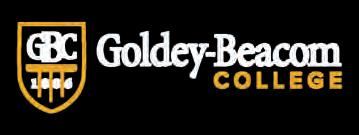

ways such as ensuring that emerging trends are reflected in our curriculum and course offerings. As we have for nearly 140 years, we are committed to carefully listening to employers and state officials as they lay out plans and needs so that we can be the trusted provider of Delaware’s workforce.
As higher education continues to work together, these strategies form a cohesive roadmap to prepare Delaware’s workforce for the demands of tomorrow while ensuring equitable opportunity for all students across the state. n go.gbc.edu/impact


—Cynthia Karnai, MBA Financial Management conc. Pursuing my MBA at Goldey-Beacom… boosted my career with DSHA and allowed me to make a bigger impact for fellow Delawareans as I took the reins of the Housing Finance division in 2009.
InnovativeGlobal
Impact
Colleen Perry Keith, Ph.D. (left) is president and Janine G. Sorbello (right) is the director of external affairs at Goldey-Beacom College.
Higher Learning Health Careers Begin Here
New cutting-edge Centers of Excellence offer hands-on training and pathways to high-demand healthcare jobs
CONTRIBUTED BY DELAWARE TECHNICAL COMMUNITY COLLEGE
DELAWARE TECHNICAL COMMUNITY COLLEGE
has been responding to the workforce needs of state employers for more than 50 years.
To fulfill this mission, the college has continued to renovate its facilities to ensure students have access to state-of-the-art lab space and equipment, so they leave Delaware Tech with the training and skills needed to meet workforce demands.
A few of the most recent examples of these investments include the new Allied Health Center of Excellence at the George Campus in Wilmington and the new Highmark Healthcare Center of Excellence at the Terry Campus in Dover.
“Thanks to continued support from Delaware’s General Assembly, governors, and congressional delegation, the college has been able to not only address some critical deferred maintenance issues, but at the same time provide our students with the resources they need to succeed in the workforce,” said Delaware Technical Community College President Mark T. Brainard. “These upgrades have not only provided beautiful spaces in which to learn, but have also equipped students with the ability to gain knowledge and skills using state-of-the-art equipment that prepares them for their careers after college.”
credits. The renovation also included improvements to the building’s conference center, which now features high-tech audiovisual equipment and a modern space for internal and external events held at the Wilmington campus.
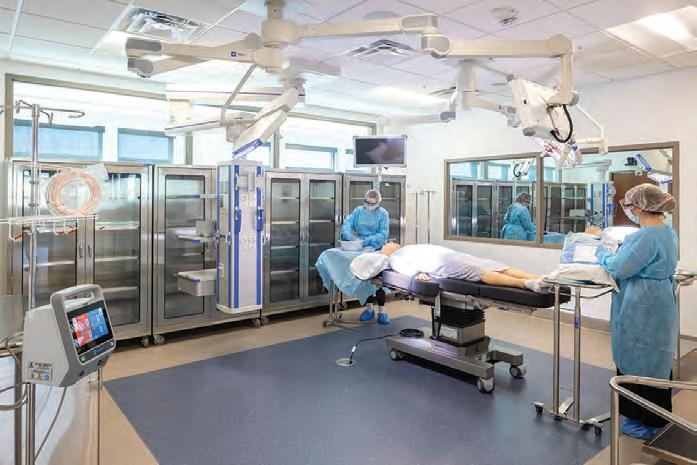
At its Dover campus, the college transformed an existing building into the Highmark Healthcare Center of Excellence, which includes state-ofthe-art classrooms, labs, and collaborative spaces in Building 200, highly visible from U.S. 13. Created through the extensive renovation of a nearly 50-year-old building, the 8,700-square-foot facility has been converted into a learning environment for 11 short-term allied health certificate programs. The $2.1 million project was supported by a $1 million contribution from Highmark Blue Cross Blue Shield Delaware’s BluePrints for the Community. Programs offered through the center are managed by the college’s Division of Workforce Development and Community Education and include certifications for central service technician (sterile processing), medical administrative assistant, clinical medical assistant, EKG technician, hemodialysis technician, certified nursing assistant, pharmacy technician, phlebotomy technician, dental assistant, emergency medical technician, and ophthalmic assistant.
The Allied Health Center of Excellence is the result of a major $22 million renovation of the George Campus’s 25-year-old Southeast Building that enabled the college to expand its paramedic and surgical technology degree programs to the Wilmington campus. Both were previously offered only at the Terry Campus in Dover.
In addition, the 75,000-square-foot Allied Health Center of Excellence serves as a resource for graduates who want to obtain continuing education
Graduates of these programs will support the state’s healthcare industry by filling some of the highest-demand labor market needs.
“Through the creation of these Centers of Excellence, Delaware Tech is able to train students to succeed in filling critical, high-demand jobs in the state’s healthcare sector,” said Brainard. “With access to the most up-todate equipment, they leave the college with the skills they need to not only find jobs that will provide for themselves and their families, but which also serve the needs of the state’s employers and their fellow Delawareans.” n

With more than 100 degree, diploma, and certificate programs, Delaware Tech will lift you up to high-demand jobs. MAKE YOUR MOVE.
Higher Learning
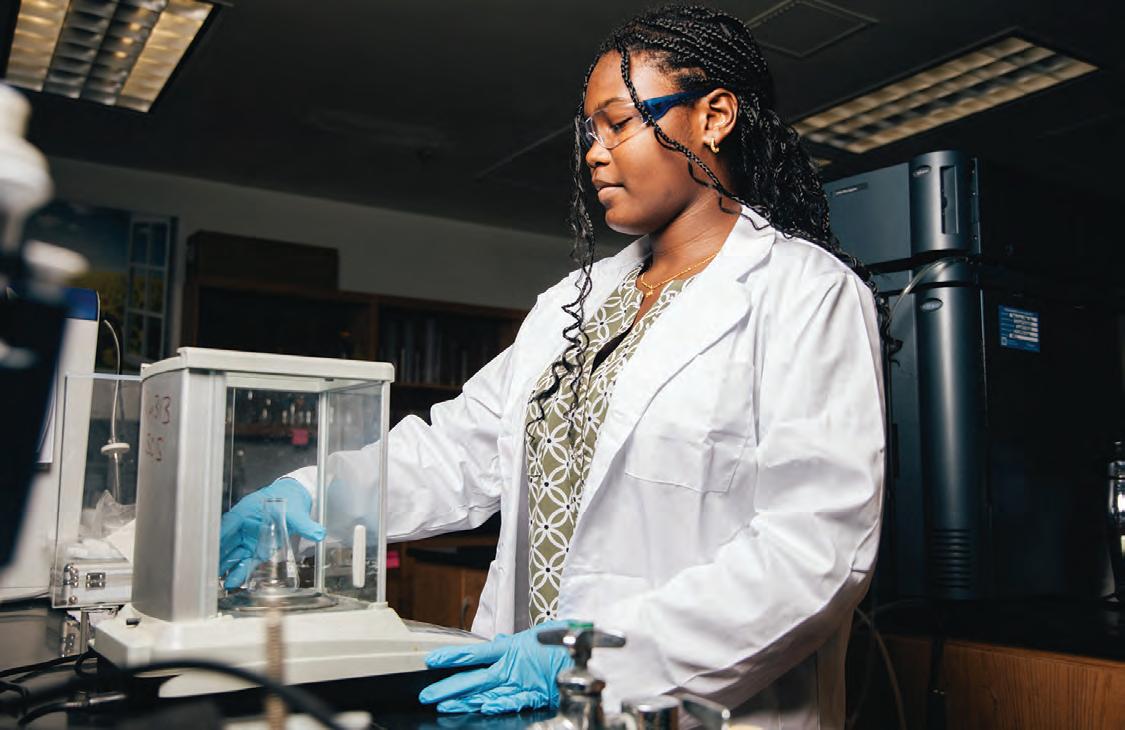
DSU’s Formula for the Future
Building
a future-ready workforce through tech, training, and industry partnerships
BY DEVIN BONNER
DELAWARE’S WORKFORCE IS CHANGING.
Artificial intelligence, rapid developments in technology, and automation are shifting the workforce needs of various industries, such as retail, finance, and healthcare. Delaware State University (DSU) is responding with forward-looking programs that connect education to workforce demands, giving students the skills and experience necessary to thrive in a changing economy.
This spring, DSU broke ground on a new building for its College of Agriculture, Science and Technology. The facility will give students more space for hands-on training, applied research, and practical learning tied to real workforce needs.
The university is also investing in areas where student interest and employer demand align. DSU’s Innovation Challenge, held in partnership with Capital One, awarded $250,000 to student entrepreneurs this year. Part of the Innovation Venture Summit, the daylong event brought together students from across the country, educators, and national business leaders to spotlight innovation in agriculture, technology, and entrepreneurship. The competition challenged students to develop and pitch original business ideas while learning directly from financial, retail, and technology experts.
“At Delaware State University, we are proud to house the Center of Excellence in Emerging Technologies,” said Dr. Cherese Winstead Casson,
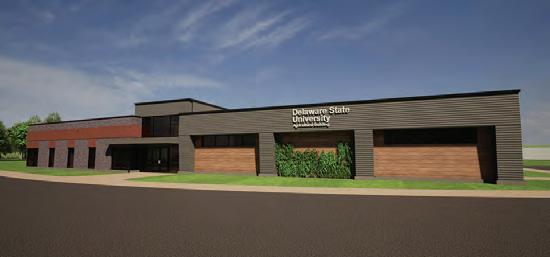
dean of the College of Agriculture, Science and Technology. “This means our students are being educated and trained in cutting-edge areas like data science, AI, robotics, drones, and remote sensing — this is what innovation looks like.”
In the tech space, DSU students recently took part in the FICO Analytics Challenge, where they worked on real-world projects involving artificial intelligence and fraud detection. The program gave students a chance to develop data science skills with direct mentorship from FICO’s senior leadership.
“The Educational Analytics Challenge program not only empowers students to get real-world experience with data analytics, but also to learn the fundamentals of building responsible, auditable, and ethical AI models
to protect and safely advance AI practices for future generations,” said Dr. Scott Zoldi, FICO’s chief analytics officer.
DSU students also have the ability to attain critical certifications needed to compete in the job market. Through its partnership with Cisco, DSU offers access to the Cisco Networking Academy, which features programs that provide hands-on learning and the opportunity to earn industryrecognized certifications.
DSU’s valued corporate partnerships are also vital to ensuring the university is doing its part to prepare students to meet the current and future needs of work. Agilent Technologies, named DSU’s Corporate Partner of the Year in 2024, has committed nearly $9 million in financial and in-kind support, including full scholarships, lab equipment, and mentoring programs, since 2022.
By focusing on entrepreneurship, tech skills, industry partnerships, and hands-on learning, DSU is building a future-ready workforce that reflects the talent, diversity, and innovation Delaware needs. n

Devin Bonner is the communications director at Delaware State University.
NO LIMITS, ALL POSSIBILITIES
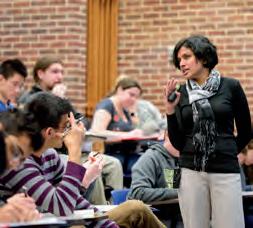
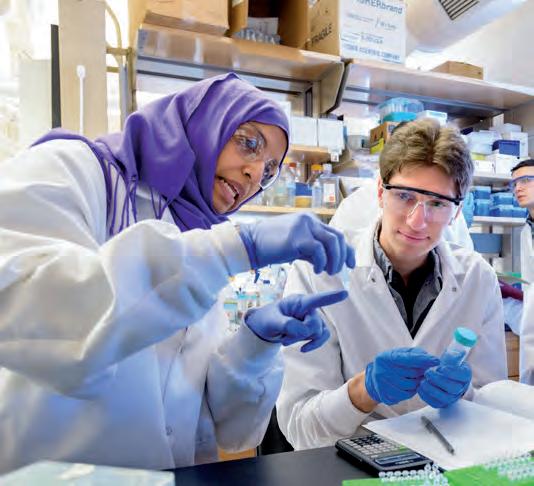


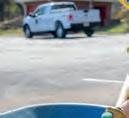

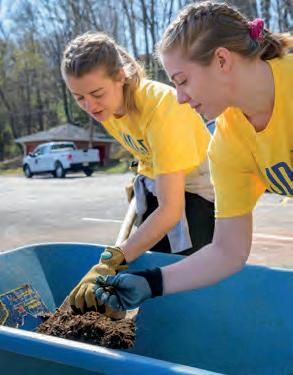
Insurance & Financial Services
A Golden Opportunity
Gold’s resurgence as a safe haven asset amid inflation and tariff concerns
BY JOE MATTINA
IN RECENT YEARS, gold and silver have re-emerged as prominent safe-haven assets, driven by growing concerns over persistent inflation and escalating global trade tensions. Despite the rise of digital currencies and complex financial instruments, these precious metals provide utility for those looking to hedge against the uncertain and tense economic landscape seen today. As inflation proves more stubborn than anticipated and geopolitical frictions manifest through tariffs, gold’s role as a store of value is becoming increasingly relevant.
INFLATION’S GRIP ON THE GLOBAL ECONOMY
Inflation reduces the purchasing power of fiat currencies, and in turn, diminishes the yield of interestbearing assets such as bonds. Gold, while non-interest-bearing, tends to perform well when inflation is high because its price history confirms that it preserves purchasing power.
The current inflationary environment central banks are grappling with began during the pandemic. Although originally believed to be transitory, supply chain disruptions, labor shortages, and robust consumer demand pushed inflation to a 40-year high, and combating it remains a challenge for central banks — primarily the Federal Reserve — especially given the increasing tension in global trade policy and subsequent fears of recession.
or diplomatic uncertainty, investors tend to flee to assets perceived as safe and liquid such as gold due to its universal acceptance and role in central bank reserves.
INVESTMENT DEMAND ON THE RISE
As inflation and geopolitical risks persist, investment demand for gold has surged. In April 2025, gold overtook the “magnificent seven” as the most traded asset, due to an increase in purchasing by central banks – in particular China — and an increase in investment demand.1

TARIFF TENSIONS STIR GEOPOLITICAL RISK
Renewed trade tensions — particularly between the United States and China — have reignited fears of a global recession. Both countries have imposed fresh rounds of tariffs and export controls against each other. The European Union and other nations are also exploring protectionist policies to safeguard their industries, further complicating the global trade environment.
These developments contribute to broader geopolitical instability, which historically benefits gold. During times of international conflict
While cryptocurrencies like Bitcoin have often been touted as “digital gold,” recent volatility in digital asset markets has reminded investors of the traditional role gold plays in portfolio diversification. Gold’s low correlation with equities and its resilience during market downturns make it a preferred choice as a financial component to diversify a portfolio.
A MODERN ROLE IN PORTFOLIO STRATEGY
In the current environment of gold inflation and geopolitical challenges, the investment case for gold in a well-rounded investment strategy has strengthened and become more pronounced. For those navigating today’s economic uncertainty, gold offers not just a hedge — but a strategic anchor. n
1. Dolan, Mike. “Record Gold Crowded by One Mega Player.” Reuters, April 16, 2025. https://www.reuters.com/markets/commodities/recordgold-crowded-by-one-mega-player-mike-dolan-2025-04-16/

Joe Mattina is the commodity risk manager at FideliTrade Incorporated.










Fool’s Gold
Investigating the efficacy of owning gold in an inflationary environment
BY AMANDA AGATI
INVESTORS ARE CURRENTLY grappling with a slew of uncertainties — tariff policies, federal deficits, and the path of inflation, to name a few. When faced with an uncertain macroeconomic environment, investors often seek out assets that can provide a degree of “safety,” and often, gold rises to the top of the list. As investor concerns mount about market volatility, protecting purchasing power, and the long-term effects of outsized fiscal debt levels, there has been a marked increase in client inquiries for our perspective on gold as an investment asset.
Historically, central banks, which tend to have long-term investment horizons, have been the key financial users of gold. These institutions own gold in part because of tradition, but primarily to diversify their reserve assets. Some also hold gold as a means to mitigate the impact of international sanctions. Individual owners of physical gold maintain it is a highly portable, easily realizable store of value. These investors also often hold the assets with a longer-term view, sometimes as a hedge against unforeseen circumstances,

with the rationale that over the long term, owning gold will help protect against inflation as the value of fiat currency goes down.
Some may be surprised to learn that we do not recommend commodities like gold in our strategic asset allocations. In our view, such assets do not generate meaningful, inflation-adjusted returns over the long term. There is no concrete data to support the belief that a long position in natural resources, specifically commodities, earns a persistently positive and significant risk premium.
We believe equities are a more effective hedge against rising prices than commodities. Over the past 20 years, gold has returned more than 9% annualized, while the Consumer Price Index has increased approximately 3%. While this would seem like a compelling case for investing in gold as a protection against inflation, when broadening to take into consideration the equity market, using the total return of the S&P 500® as a proxy, the narrative evolves significantly. Equity returns have outpaced gold by more than 100
basis points annualized over the same period.
In addition to lagging equity returns, gold does not provide an income stream, setting aside financial derivatives. Therefore, when inflationadjusted yields are positive, there is an opportunity cost to investing in gold rather than a yield-bearing asset, such as equities or fixed income.
From a consistency standpoint, gold has also historically fallen short of equity and fixed income assets. According to Morningstar data, gold has outperformed the rate of inflation during 45% of rolling five-year periods, while investment-grade bonds have beaten inflation 86% of the time. Notably, from January 1981 through December 2000, inflation was up more than 100%, while gold was down 54%.
Given our view that we are in the later innings of the business cycle, we recommend allocations to large-cap, U.S. quality equities that have size, scale, and consistent earnings growth to help buoy the uncertain path of the cycle. n

Agati is the chief investment officer of PNC’s Asset Management Group.














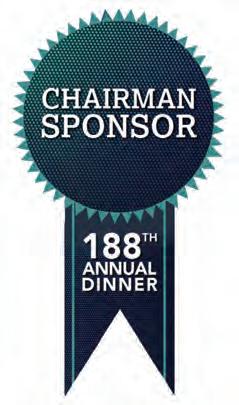

Trust the Long-Term Process
BY BRYN MAWR TRUST COMPANY CONTRIBUTOR
THE FINANCIAL MARKETS often reflect the complexities of the global economy, and trade tensions coupled with tariffs, are creating notable volatility. For investors, rapid market swings can be unnerving. The instinct to do something may feel overwhelming; however, staying calm, focusing on risk management, and adhering to a long-term strategy are essential.
UNDERSTANDING MARKET VOLATILITY
Disputes between major economies, especially when tariffs are involved, tend to ripple through global markets. Uncertainty about the impacts on industries, supply chains, and consumer prices can lead to unpredictable price movements and headlines amplifying concerns.
Volatility, while unpleasant, is a natural and necessary feature of the market. It also creates opportunity as market participants digest new information and adjust expectations. For long-term investors, enduring periods of heightened volatility is part of the process leading to sustained growth.
THE IMPORTANCE OF STAYING CALM
When markets fluctuate, it’s easy to get caught up in the moment. Losses, even on paper, trigger emotional reactions. However, reacting impulsively to short-term events can be costly. Selling during a downturn
locks in losses and may cause you to miss out on post-decline rebounds. Staying calm doesn’t mean ignoring what’s happening. Instead, it encourages you to approach the situation with a level head and a clear focus on your long-term goals. Historical data shows markets have endured wars, geopolitical tensions, recessions, and pandemics, yet they’ve reliably recovered and grown over time.
ENGAGE WITH YOUR FINANCIAL ADVISOR
Your financial advisor can contextualize market movements, providing clear explanations about what impacts trade tensions and tariffs may have on your portfolio. An advisor can also help reassess your goals, align your risk tolerance, and identify opportunities for your long-term plan.
Advisors have experience navigating volatile markets, which makes them valuable allies during uncertain times. Use their insights and expertise to guide your decisions and keep fear in check.
PRIORITIZE RISK MANAGEMENT
A well-diversified portfolio can act as a buffer as different asset classes often react differently to volatility. Consider how your current allocation aligns with your risk tolerance. If the recent market fluctuations feel too
stressful, it might be a signal to adjust your portfolio for the future when emotions are not heightened. These changes should prioritize balance and sustainability over drastic shifts.
If your financial plan includes maintaining an emergency fund and avoiding over-leveraging, you’re already adapting to risk. Keep contributing to these safeguards as part of your broader investment strategy.
STAY COMMITTED TO YOUR LONG-TERM STRATEGY
While losses — realized or unrealized — never feel good, abandoning your long-term strategy out of panic could be far more detrimental. Investing is a marathon, not a sprint. Short-term setbacks are part of a process that builds wealth over time.
History shows that making drastic changes during market downturns can harm returns. Even small changes in timing can have a big impact on long-term outcomes.
Instead of reacting to today’s fears, remind yourself why you adopted your current strategy. Has your financial goal changed? If not, staying invested and maintaining discipline is likely the wisest course of action. n

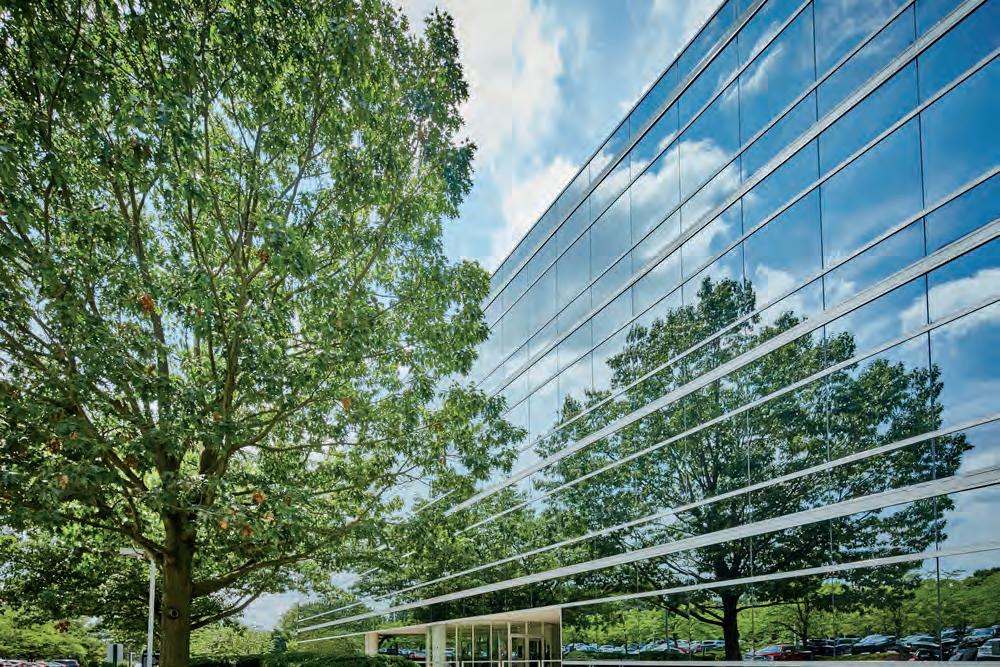








Insurance & Financial Services

Navigating Market Challenges
BY RYAN GIACOMARRO
IN TODAY’S ECONOMIC LANDSCAPE, where terms like “recession” and “tariffs” dominate discussions, investors must be more strategic than ever to navigate market volatility, mitigate risks, and capitalize on pockets of opportunity. By focusing on resilience and leveraging diverse investment tools, investors can work toward their wealth goals even amid uncertainty.
Diversification of assets, themes, and geographies enables investors to outperform cash and achieve stability in an era where established U.S. exceptionalism is increasingly debated. While we still believe there is room for U.S. equities to expand in the coming year, selectivity is key. In addition to stocks, we’ve focused on key areas to adjust investment portfolios and better navigate the new market regime.
STRATEGIC STOCK SELECTION IN U.S. EQUITIES
Being selective within U.S. equities is crucial for investors aiming to maximize returns while managing risk. Investors should focus on companies with strong fundamentals, such as robust balance sheets, consistent earnings growth, and competitive advantages in their respective industries. Additionally, identifying sectors poised for growth, such as technology and industrials, can provide opportunities for capital appreciation. It’s also important to consider valuation metrics to avoid overpaying for stocks, even in promising sectors.
OPTIMIZE FIXED INCOME EXPOSURE
Building resilient portfolios involves assets with low or negative correlations, each capable of outperforming cash. Core fixed income remains a primary source of resilience during growth downturns, while opportunistic credit strategies can capitalize on economic stress. For example, equity-linked structured notes can generate higher return potential with a narrower range of possible outcomes than assets with similar volatility, such as preferred equities and high-yield bonds. These structured notes pay a coupon, which is a function of implied equity market volatility and interest rates, potentially providing greater downside protection and higher potential returns.

Shorter-dated rates have proven effective in shielding portfolios from recession fears, offering protection against downturns while longer-term rates face risks like deficits. By concentrating fixed income exposure in fiveto seven-year maturities, investors can achieve stability, as these rates are less correlated with near-term economic fundamentals.
DIVERSIFY CURRENCY HOLDINGS
Currency diversification is essential for enhancing returns and reducing volatility amid a declining U.S. dollar. By diversifying into the euro, yen, and gold — assets increasingly favored by central banks — investors can mitigate currency risks. Non-U.S. equities also offer a primary path to diversification for dollar-based investors. Gold, expected to rally due to geopolitical risks and potential dollar weakness, presents an opportunity for increased allocation.
CONSIDER INFRASTRUCTURE INVESTMENTS
Infrastructure investments offer unique opportunities for private investors. With consistent historical returns from inflation-adjusted cash flows, infrastructure is particularly attractive in uncertain times. Over 40% of infrastructure returns are driven by income, making it appealing amid bond market volatility.
In navigating today’s complex economic environment, investors are encouraged to adopt a thoughtful and diversified approach. By strategically diversifying assets, optimizing fixed income exposure, and exploring currency and infrastructure investments, investors can effectively manage risks and seize opportunities. This approach empowers investors to work toward their financial goals with confidence, even in uncertain times. n
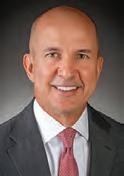
Ryan Giacomarro is head of the MidAtlantic market at J.P. Morgan Private Bank.




The Value of a True Benefits Consultant Partnership
BY STEPHANIE CLENDENING

CHOOSING THE RIGHT BENEFITS CONSULTANT
is one of the most overlooked strategic decisions a business can make. For many employers, the relationship with their broker is purely transactional. With the right relationship, a true benefits consultant becomes a longterm partner helping leadership teams make thoughtful, cost-effective, and sustainable decisions that align with workforce goals.
At Weiner Benefits Group, we believe the difference lies in strategy, consistency, and shared accountability. But above all, it comes down to relationships. We take the time to truly understand each client’s business, their people, and the unique challenges they face. By building real partnerships and understanding what matters most to each client, we develop strategies that are not only customized but aligned with the bigger picture. Every decision is grounded in a deep commitment to partnership, clear communication, and doing what is right for both the organization and its employees.
MOVING BEYOND THE BASICS
We often hear, “We already have a broker.” But many times, that broker is simply forwarding quotes or renewal rates without any real insight. A true consultant digs deeper. We analyze claim trends, identify cost drivers, and recommend proactive changes before the renewal season. We sit with employers to understand how each decision, from contribution modeling to plan design, will impact not just the budget, but the day-to-day experience of employees and HR teams.
SOLVING PROBLEMS BEFORE THEY BECOME COSTS
The best strategies solve problems before they surface. When one of our clients considered adding telemedicine to reduce urgent care visits, it seemed like a routine vendor switch. But by digging deeper into their pharmacy data, we uncovered a hidden opportunity: a prescription delivery
benefit already included in their current vendor offering. With better utilization, this alone could save them more than $20,000 a year. That kind of savings does not come from reacting; it comes from having an advisor who is always looking ahead.
CLARITY, CONFIDENCE, AND COMMUNICATION
In a time when benefit costs are continuing to rise, employers deserve more than spreadsheets. They need partners who can explain what the numbers mean, simplify complexity, and provide clear options. That includes modeling contributions to help with budgeting, explaining tax impacts to employees, and making sure every stakeholder, from owners to HR to staff, feels informed.
Our role is to make sure employers are not just compliant, but confident in their decisions.
THE RIGHT PARTNER MAKES ALL THE DIFFERENCE
Whether you have 20 employees or 2,000, the right consultant can help you take control of your benefits and create lasting value for your team. At Weiner Benefits Group, we believe in building real partnerships, providing thoughtful guidance, and showing up when it matters most.
If you are looking for a partner who truly understands your goals and is committed to helping you achieve them, we would love to connect with you. Let’s start the conversation. n

Stephanie Clendening is the director of operations and business development at Weiner Benefits Group, LLC.
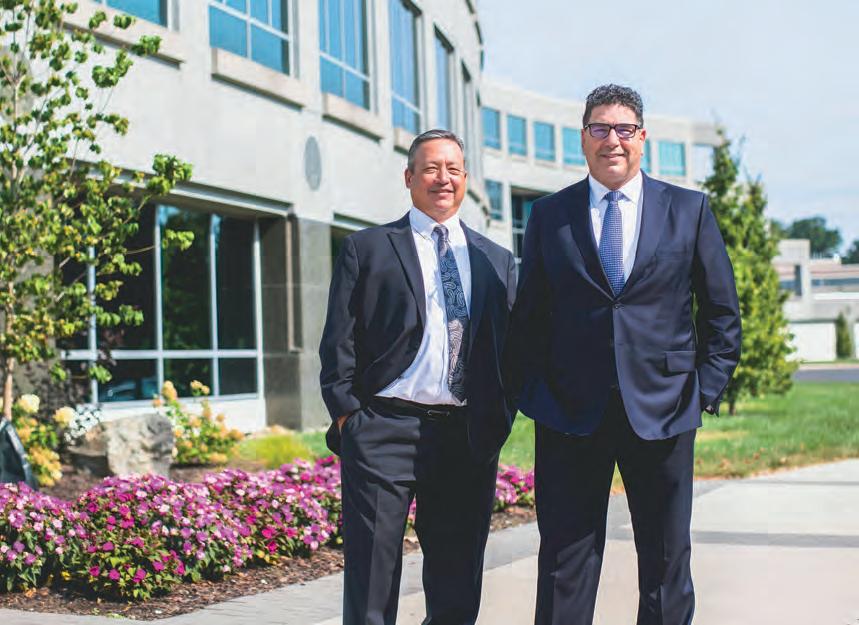
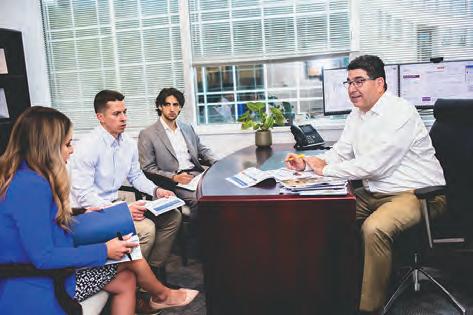
Newsbites
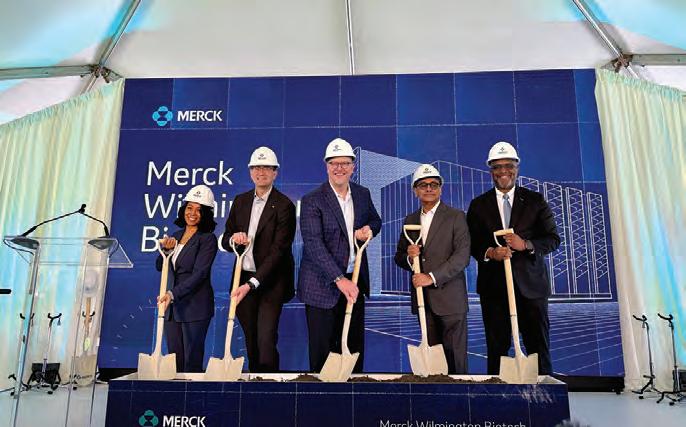
Merck Breaks Ground on New Biologics Center
Merck recently announced the start of construction for a $1 billion, 470,000-square-foot state-of-the-art biologics center of excellence in Wilmington, Del.
Merck Wilmington Biotech will comprise laboratory, manufacturing, and warehouse capabilities to enable the launch and commercial production of nextgeneration biologics and therapies, including potent antibody-drug conjugates, reinforcing Merck’s focus on expanding and diversifying its pipeline.
The intent is to establish the site as the future U.S. home for producing KEYTRUDA® for U.S. patients. This is part of a significant investment to not only bring the world’s best-selling medicine closer to the American patients who rely on it, but to also establish a home for the company’s biologics portfolio of products serving U.S. patients.
“The Merck Wilmington Biotech site represents our continued commitment to growing our investments in U.S. manufacturing and has the potential to create thousands of high-paying American jobs while ensuring that we can produce and distribute products close to patients right here in the U.S.,” said Robert M. Davis, chairman and chief executive officer of Merck.
Delaware Public Media Appoints General Manager
Delaware Public Media (DPM) announced the appointment of Tom Interrante as its new general manager/ station director, effective July 7. Interrante succeeded Pete Booker, who retired from the role.
Interrante brings more than a decade
of leadership experience in the public media and commercial radio. Since 2011, he has served as the director of underwriting partnerships and revenue development at WXPN in Philadelphia. His previous experience includes roles with Clear Channel Radio, Cox Media (WDBO Newstalk Radio), CBS Radio, WIP Sportsradio, WCAU-TV, and New Jersey Public Television.
“I’m passionate about public media’s role in serving diverse communities and ensuring access to highquality journalism,” said Interrante. “I look forward to collaborating with News Director Tom Byrne, the DPM staff, board of directors, community advisory board, partners, donors, program sponsors, NPR, and communities throughout the state to lead Delaware Public Media into its next chapter. I believe DPM is well-positioned for growth in both membership and underwriting, while continuing to serve as a trusted, essential source for Delaware news coverage, events and programming — on air and online.”
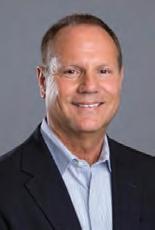
QPS Expands in Delaware Technology Park
A globally leading clinical research organization (CRO) has chosen to grow its Newark, Del., headquarters with a $16.6 million laboratory and office expansion in Delaware Technology Park, where the company already is the largest tenant.
QPS Holdings, LLC is renowned for its work supporting large pharmaceutical and biotechnology companies in their research programs and drugdevelopment efforts. In addition to its headquarters in Newark, it operates U.S. locations in Florida and Missouri; European sites in Austria and The Netherlands; Asian facilities in China, India, and Taiwan; and a site in Australia.
QPS currently occupies all of 3 Innovation Way and 90% of 1 Innovation Way in Delaware Technology Park. The company plans to lease an additional 55,515 square feet of space – including
Tom Interrante

more than 15,000 square feet of lab space in a new building at 6 Innovation Way. The company currently has 336 fulltime employees in Delaware and plans to add 135 new full-time positions here by the end of 2027.
“This expansion project in Delaware Technology Park, Newark, Del., is strategically important to QPS’s businesses,” said Ben Hsu, chief administrative officer of QPS Holdings, LLC. “It will significantly expand QPS’s capacity to serve our clients in both Lab Services and Clinical Services globally.”
New Executive Director at The Mary Campbell Center
The Mary Campbell Center recently announced that Tarah Pappas, MBA, NHA, has been hired as its new executive director.
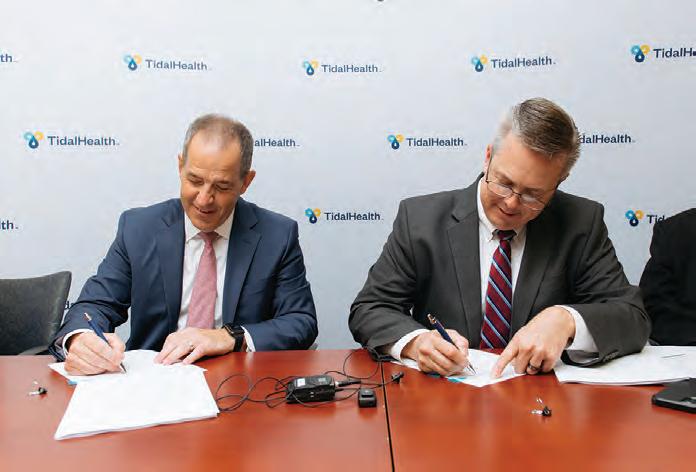
Atlantic General Hospital joins TidalHealth
Atlantic General Hospital (AGH) in Berlin, Md. and TidalHealth of Salisbury, Md. have signed a definitive agreement that will bring the two health systems together under TidalHealth.
“Healthcare systems are more frequently coming together to meet the challenges of an ever-evolving environment. We are proud to now have officially partnered with an organization that has very similar philosophies and beliefs, and together we will be working throughout the region to improve health and wellness across the continuum of care,” said Steve Leonard, Ph.D., MBA, FACHE, president and CEO of TidalHealth. “We continue to look for partners on this journey and are excited about the opportunities to positively impact additional lives through the growth that will follow.”

Pappas has been a part of the Mary Campbell Center family since 2017, when she was hired as its business office manager. Since then, she has earned her MBA in nonprofit leadership from Wilmington University, followed by a graduate certificate in health care administration. In 2023, she completed the studies, fieldwork, and certification examination to become a licensed Delaware nursing home administrator.
AGH, and all of its affiliated services, medical practices, and outpatient facilities now joins the TidalHealth family that includes TidalHealth Peninsula Regional in Salisbury, Md., TidalHealth Nanticoke in Seaford, Del., TidalHealth McCready Pavilion in Crisfield, Md., a robust primary care and specialty care network of offices, and medical campuses in Ocean Pines, Md. and Millsboro, Del.
Pappas’ commitment to the center has always been apparent. She adheres to a resident-first philosophy, is collegial with colleagues, approachable with families, and brings a strong business sense and big heart to work each day. These qualities will ensure that the center continues to shine and meet its mission to discover, grow, and celebrate abilities.
McKim & Creed Acquires Landmark Science & Technology
McKim & Creed, a leading engineering, planning and geospatial services firm, announced that it has acquired Landmark Science & Engineering based in Newark, Del. The strategic acquisition is expected
Tarah Pappas
to strengthen McKim & Creed’s presence in this region while providing expanded services to Landmark’s clients.
Founded in 1987, Landmark Science & Engineering is a leading consulting firm offering civil engineering, surveying, and natural environmental sciences to provide public- and private-sector clients with innovative site solutions and valueengineered results for important land development and building improvement projects.
“This acquisition marks a significant milestone in our growth journey,” said Street Lee, McKim & Creed’s chief
executive officer. “By coming together, we’re able to serve clients in the Delaware, Pennsylvania, and Maryland region with the same quality, innovation, and care expected from us while offering expanded resources, expertise, and technology-driven solutions for Landmark’s existing customers.”
Historic HBCU Matchup Scheduled
Calling it “a potential paradigm shift for HBCU football,” Delaware State University Athletic Director Tony Tucker
Cinnaire Raises $340 Million for Affordable Housing
Cinnaire recently announced the closing of a $340 million Low-Income Housing Tax Credit (LIHTC) multi-investor fund — Fund 43 — the largest investment fund in the organization’s 32-year history.
Designed to create housing that provides people with a safe, stable place to call home, the fund will finance 33 developments across 11 states, resulting in 2,455 affordable housing units. These developments are expected to support more than 5,400 individuals and generate over $844 million in local economic activity.
“For nearly four decades, the Low-Income Housing Tax Credit has been the cornerstone of affordable housing development,” said Ryan Robinson, president of Cinnaire Equity Partners. “The support from our developer and investor partners in Fund 43 reaffirms the important role LIHTC plays in addressing our nation’s housing crisis. By investing in affordable housing, we’re simultaneously creating new jobs, stimulating local economies, and promoting long-term stability in our communities.”

Fund 43 will support transformative developments in several states, including Imani Village Phase IV. Located in New Castle County, Imani Village IV will deliver 84 new units — 57 affordable and 27 market-rate — serving families as part of the Riverside community revitalization effort. The project will be developed by Pennrose Properties in partnership with REACH Riverside and the Wilmington Housing Authority.
announced that the Hornets will host their home game this fall against the Norfolk State Spartans at Lincoln Financial Field, home of the Super Bowl LII and LIX champion Philadelphia Eagles.
The game, set for Thursday, Oct. 30, 2025, will feature the first head-tohead matchup between former Eagles greats — and now rival head coaches — DeSean Jackson and Michael Vick. Hornets Head Coach Jackson and Spartans Head Coach Vick were both hired following the 2024 season to revamp the Mid-Eastern Athletic Conference football programs.
“While we are both excited about the game, this is more than that,” said Norfolk State President Javaune AdamsGaston and Delaware State President Tony Allen in a joint statement. “It is an opportunity to showcase our talented students on and off the field, as well as the great many faculty, staff, and coaches whose work is a labor of love. The measure of this game’s success will be in the light it shines on the power of our HBCU community; we are the best return on investment in higher education.”
STAR Fund Announced to Retain STEM Talent
The Delaware Division of Small Business (DSB), in partnership with BioConnect DE, a jobs-focused initiative of the nonprofit Delaware Center for Life Science Education and Training, recently announced the details of the STEM Talent Advancement and Retention (STAR) Fund.
The STAR Fund will provide tuition reimbursement awards for student loans of up to $6,000 to incentivize, retain, and attract graduates from accredited postsecondary colleges or universities who are currently employed
or considering employment in Delaware in the science, technology, engineering, and math (STEM) fields.
By offering financial support for student loan payments, the STAR Fund aims to attract and retain top talent in Delaware, ensuring the state continues to grow its workforce in key industries.
“Retaining a young, diverse workforce is key to sustaining Delaware’s economy,” said DSB Director CJ Bell. “I believe the STAR Fund will be a blueprint for how we retain talent and continue our effort in becoming the innovation hub of the Mid-Atlantic.”
“We are pleased to partner with DSB on this important initiative,” said Center for Life Science Education and Training Chairman Michael Fleming. “Developing and retaining a world class STEM workforce is the highest priority for the life science industry in Delaware and the STAR Fund will be an important tool in keeping great research and business talent here in our state.”
The application portal opens July 14 and closes July 31. Awards are expected to be made in October. Program details are available at www.bioconnectde.org/ star-fund.
Michael Houghton Receives Distinguished Service Award
In June, the Delaware State Bar Association (DSBA) presented the First State Distinguished Service Award to retired Morris Nichols partner Michael Houghton.
The award recognizes “a member of the Delaware Bar who, by exemplary leadership and service dedicated to the cause of good citizenship in civic and humanitarian service over a period of many years, has maintained the integrity and honored recognition of the legal profession in community affairs and who, as an outstanding Delawarean,
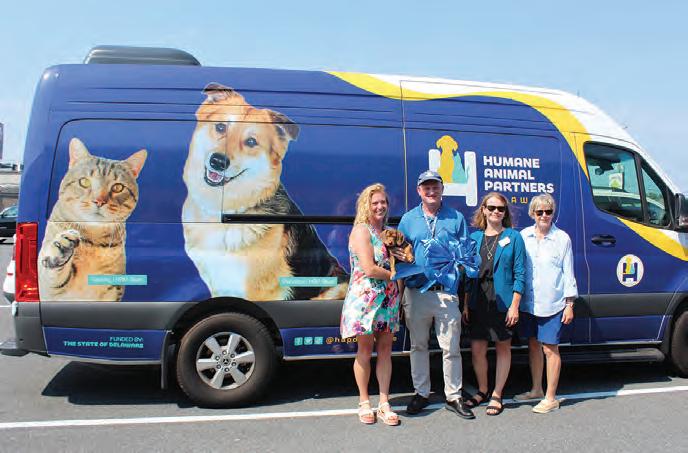
HAP Opens New Mobile Veterinary Unit
Humane Animal Partners (HAP), a statewide animal welfare organization with locations in Wilmington, Stanton/Christiana, and Rehoboth Beach, recently hosted a ribbon-cutting ceremony for its new mobile veterinary clinic at the Rehoboth Beach location.
The mobile clinic will allow the organization to better serve pets and their families through low-cost wellness, vaccine, and spay/neuter services — both on-site at HAP Rehoboth Beach and off-site throughout Sussex County and beyond. The mobile veterinary unit is made possible through a capital grant from the state’s Community Reinvestment Fund.
“We’re thrilled at the potential impact of this new initiative, particularly for Sussex families,” said Leigh McKinley, HAP’s Rehoboth Beach director. “This mobile veterinary unit really elevates our ability to serve the local community and play our part in keeping pets healthy and connected to their families.”
unceasingly advances the ideals of citizen participation and community accomplishment, thus reflecting high honor on both country and profession.”
Houghton’s many leadership roles have spanned local, state, and national bar activities, political initiatives, and nonprofit board service. He is a former president of the DSBA and the Uniform Law Commission; served on the boards of the Delaware Bar Foundation, Delaware Public Policy Institute, Delaware State Chamber of Commerce, and Pete du
Pont Freedom Foundation; and chaired the Delaware Economic and Financial Advisory Council, among other efforts.
“I am pleased to congratulate Mike for this accomplishment and his continued service to the state of Delaware,” said Bill Lafferty, chair of Morris Nichols’ executive committee. “Mike’s commitment to professionalism, integrity, and public service has been evident throughout his entire 40-year career, and his contributions to the state of Delaware are truly awe-inspiring.”
Didn’t catch us online? Here are some recent highlights from social media...


@Delaware State Chamber of Commerce
@DelawareStateChamber


First Ascent Design: It takes more than great coffee to build a strong workforce, but it definitely helps! ☕
We were proud to sponsor the coffee (and fuel the conversations) at the Navigating Delaware Pathways: Education and Workforce Development Summit.
Thanks to the Delaware State Chamber of Commerce and all the partners who made the day happen. It was great to connect with so many friends, clients, and partners. Here’s to building pathways, strengthening Delaware’s workforce, and making big things happen. One cup at a time!
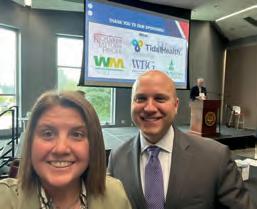

@DEStateChamber
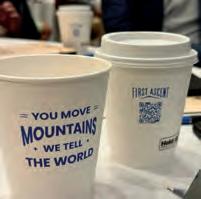

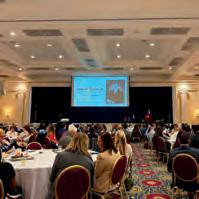
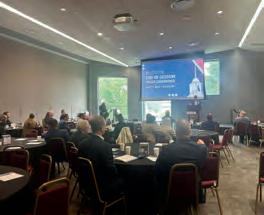
Delaware Healthcare Association: Team
DHA was at the Delaware State Chamber End-of-Session Policy Conference today where we heard from policymakers on key topics from workforce to energy and more.
So much is at stake for healthcare in our state, especially with federal uncertainty. Now’s the time to stand together to make the First State first in health! #netde #EOSConf
Meg Michiels: The Delaware State Chamber of Commerce visited with the dedicated Citi Wilmington team to share how the Chamber is strategically working to promote a competitive, prosperous and inclusive economic climate in Delaware. We look forward to continued collaborative partnership with DSCC ahead. #Citi #DSCC #Delaware
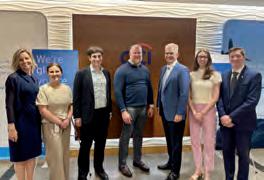

IN CASE YOU MISSED IT
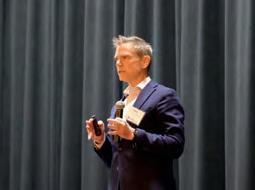

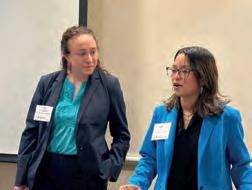
Rodel: It was an honor to join partners today at the Navigating Delaware Pathways: An Education and Workforce Development Summit. From powerful conversations to meaningful connections, it was energizing to be part of a shared vision that bridges education and workforce development across Delaware.
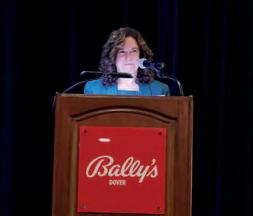
Grateful to learn from and alongside so many passionate educators, employers, and changemakers. Here’s to building pathways that lead to opportunity, equity, and a stronger future for all.
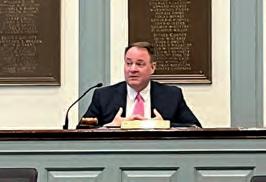


DSB staff was proud to participate in today’s Small Business Caucus meeting in the House of Representatives chamber, which coincided with Small Business Day, sponsored by the Delaware State Chamber of Commerce.
Our own Joanna Colson presented on our SSBCI loan and direct investment program and the “Race to $14M!” Insurance Commissioner Trinidad Navarro discussed the workplace safety insurance program, and Tyler Micik of the Chamber highlighted the Small Business Alliance and its activities.
#netde #smallbusiness #smallbusinessmonth
DelawareSmallBusiness:
WHAT’S NEXT?
Chamber Calendar

TUESDAY, SEPTEMBER 2
Evening Mixer at Thompson Island Brewing Company
Join us for an evening of networking at Thompson Island Brewing Company, an independent craft brewery and restaurant owned by SoDel Concepts that celebrates the coastal Delaware lifestyle.
$15 Admission

WEDNESDAY, SEPTEMBER 3
32nd Annual Chamber Chase Golf Tournament
Held in Rehoboth Beach, Chamber Chase supports our Delaware Employers and Employee Education Fund, the State Chamber’s 501(c) (4) affiliate that educates voters about key issues, candidates, and distributes educational materials about state and local elections.
$325 Members | $375 Future Members
$1,300 Member Foursome | $1,500 Future Member Foursome

THURSDAY, OCTOBER 9
Developing Delaware
Delaware may be small, but its diversity is a powerful asset. Across our three counties, each community offers lessons in innovation and opportunity. When we collaborate, we spark ideas that drive job growth and business success. Developing Delaware brings these conversations to the forefront, fueling solutions for our state’s economic future.
$75 Members
$85 Future Members
When you think of the Delaware State Chamber, think of:
#NETWORKING
Fill up your calendar by visiting our events page by scanning here:

CALL THE CHAMBER
The State Chamber of Commerce staff works for you, serving our member companies and organizations statewide. This State Chamber staff directory lists phone numbers and email addresses, as well as individual areas of responsibility. If you need business assistance or information, please don’t hesitate to call.
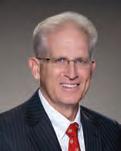
Michael J. Quaranta President (302) 576-6585 mquaranta@dscc.com


Melissa Brayman Director, Administration & Finance (302) 576-6572 mbrayman@dscc.com

Tyler Micik
Director, Public Policy & Government Relations (302) 576-6590 tmicik@dscc.com

Kerri Welcher Manager, Events (302) 576-6566 kwelcher@dscc.com

Kelly Basile Chief Operating Officer (302) 576-6564 kbasile@dscc.com

Danielle Blake Vice President, Member Engagement (302) 576-6571 dblake@dscc.com
Regina Donato Director, Communications (302) 576-6567 rdonato@dscc.com

Helana Rodriguez Director, The Partnership, Inc. (302) 576-6575 hrodriguez@dscc.com

Damon Howard Manager, Digital & Print Advertising (302) 576-6579 dhoward@dscc.com

Amanda Schimmel Manager, Marketing & Accounting (302) 576-6560 aschimmel@dscc.com
Facebook: DelawareStateChamber
Twitter: DEStateChamber
Linkedin: Delaware State Chamber of Commerce
YouTube: DEStateChamber
Instagram: DEStateChamber





1201 N. Orange Street, P.O. Box 671
Wilmington, DE 19899-0671 (302) 655-7221 www.dscc.com

